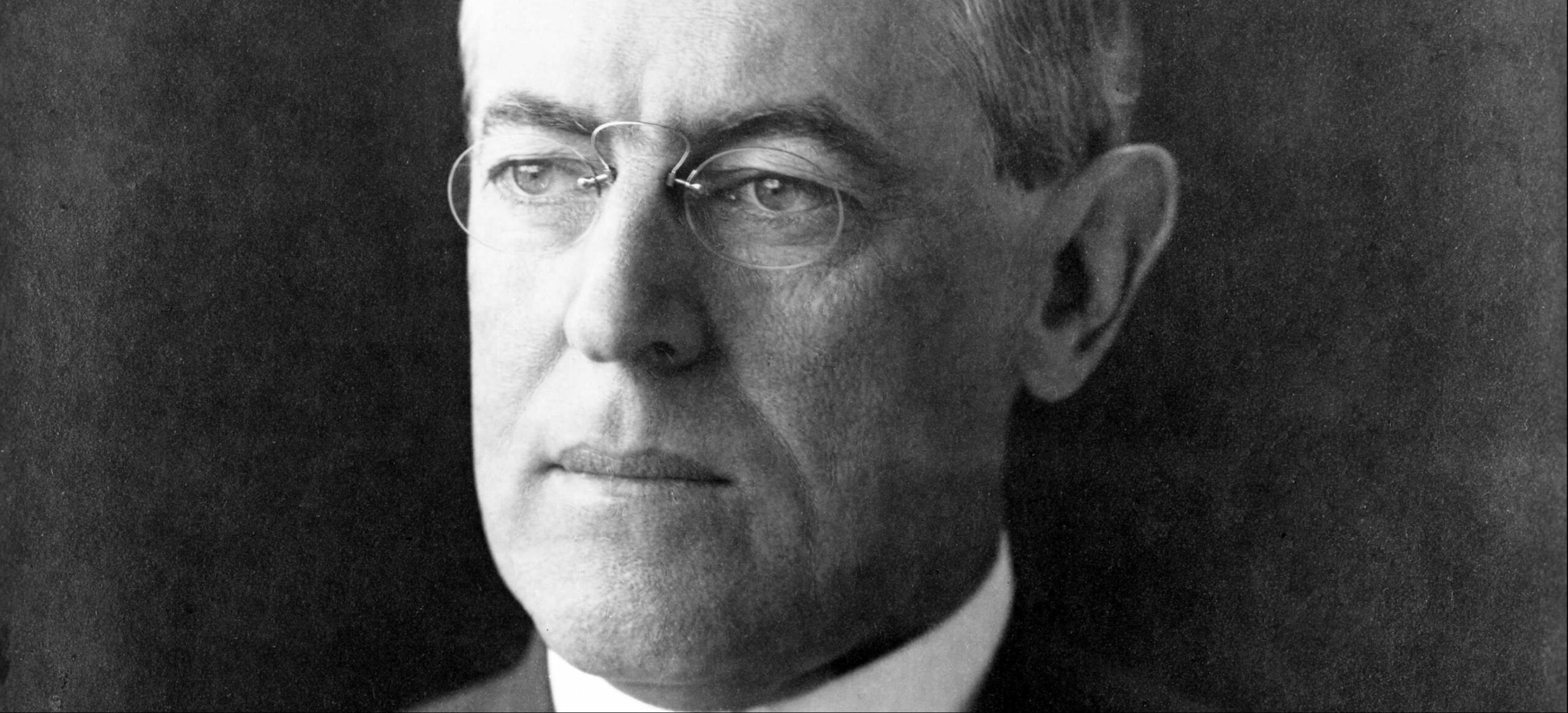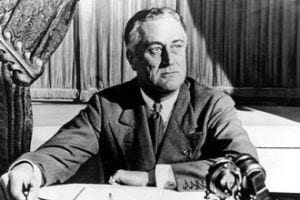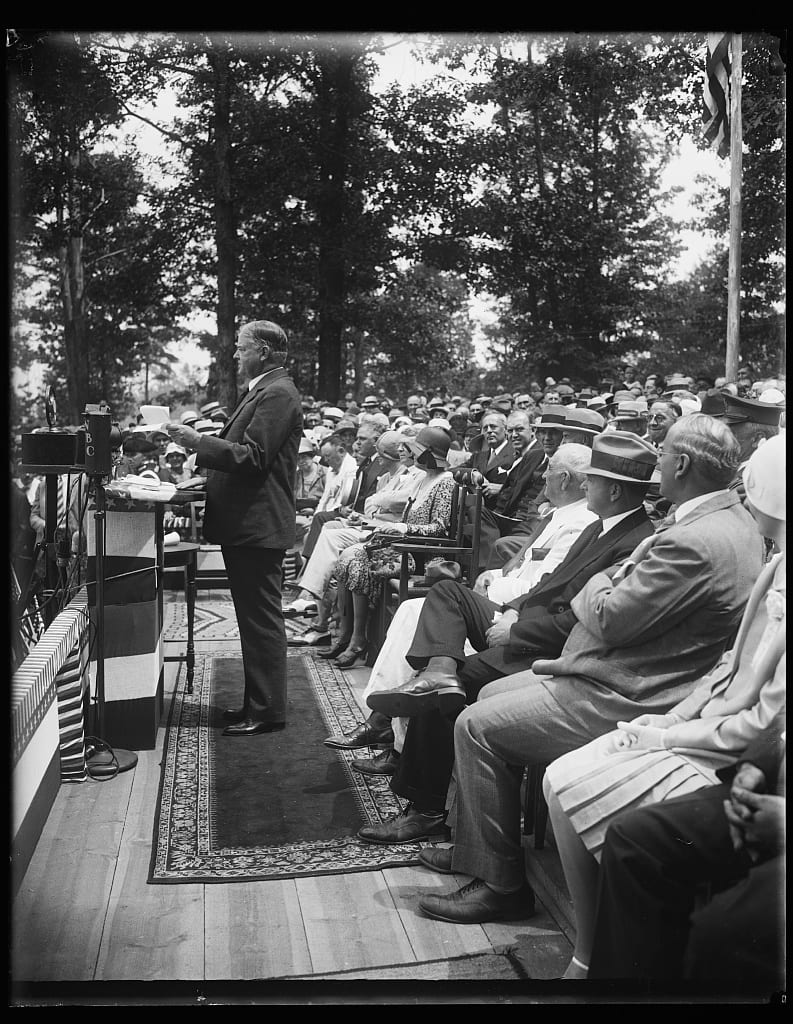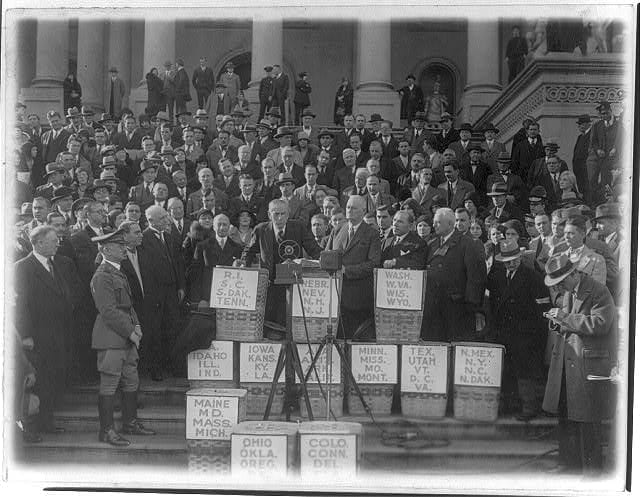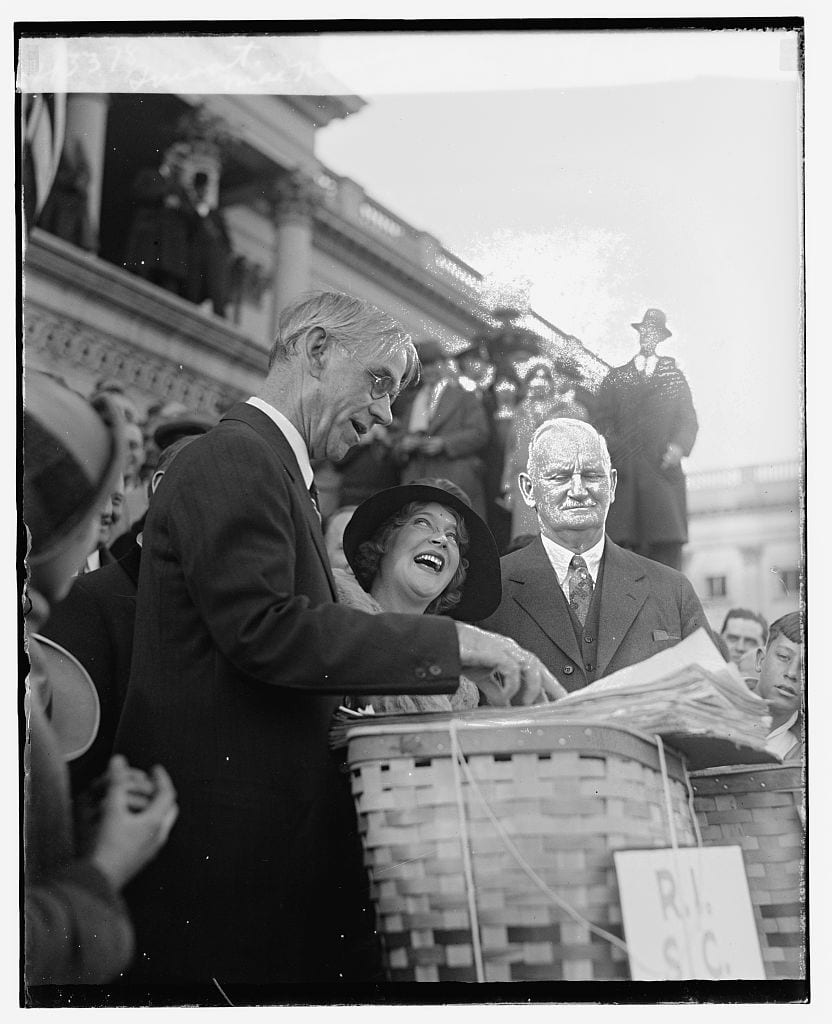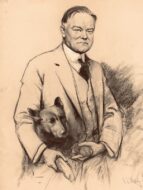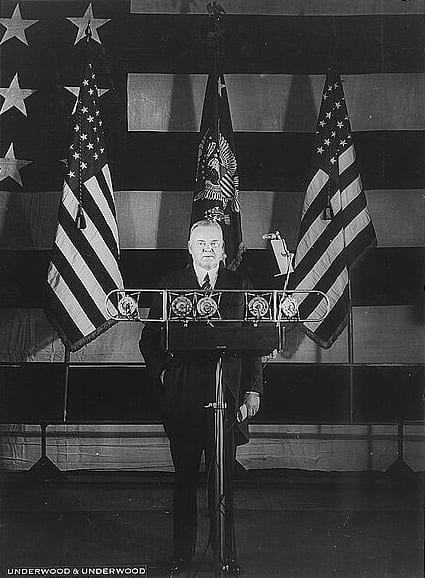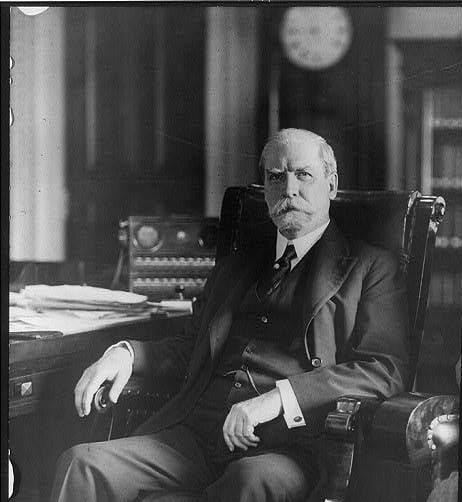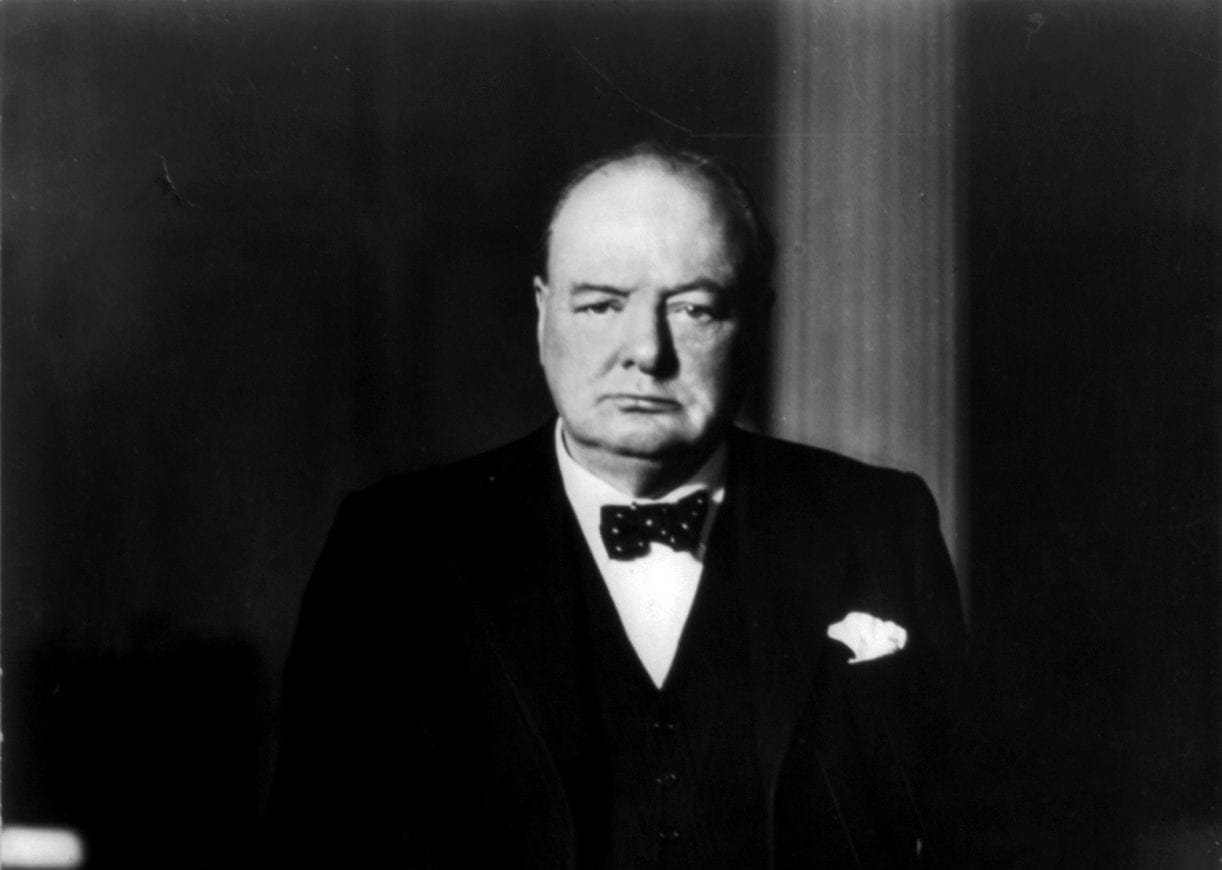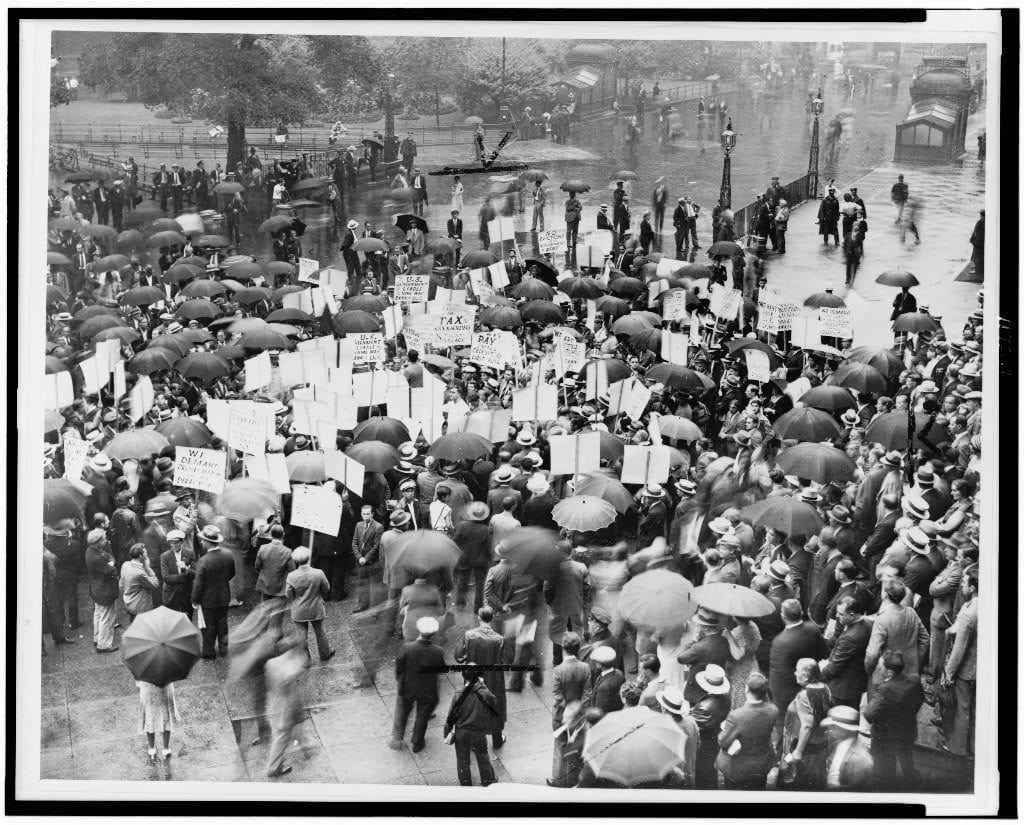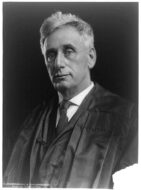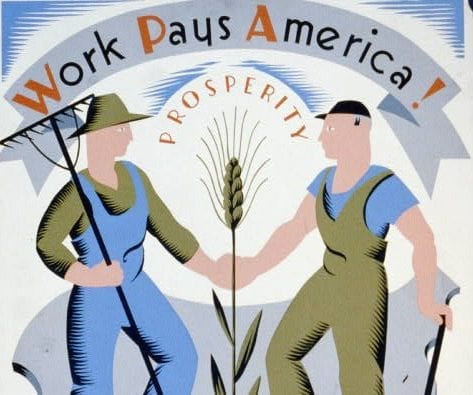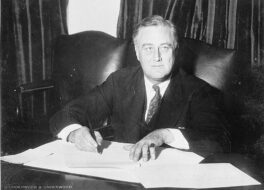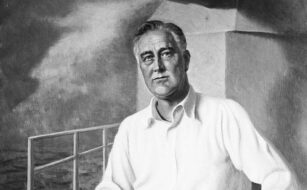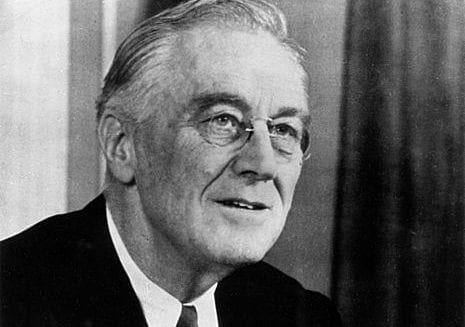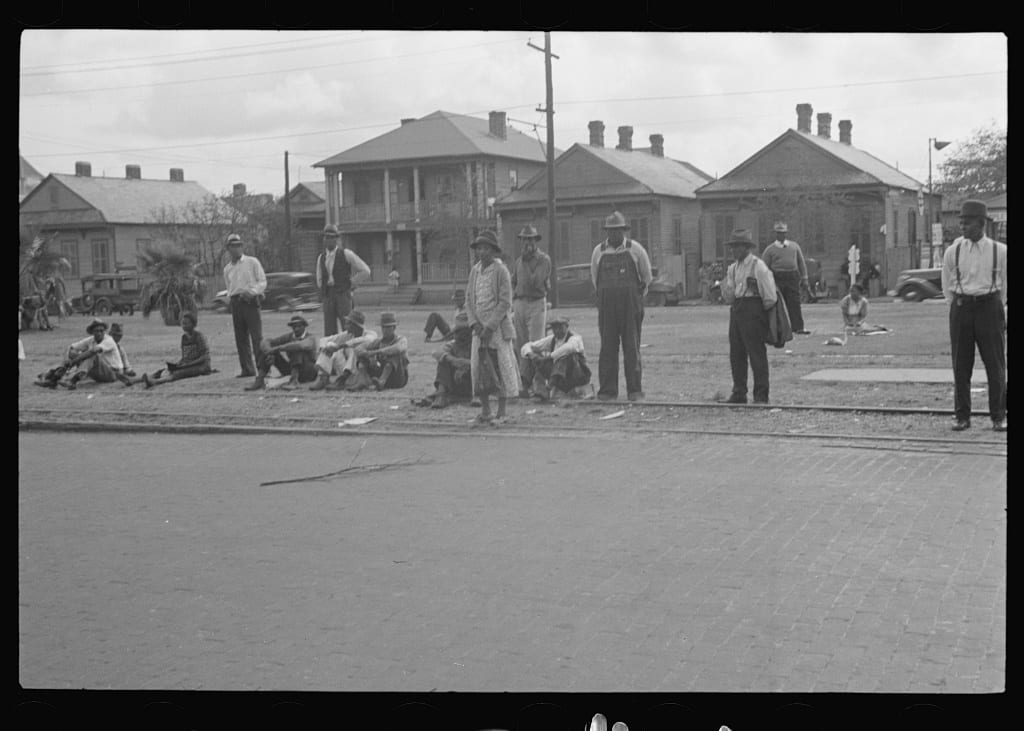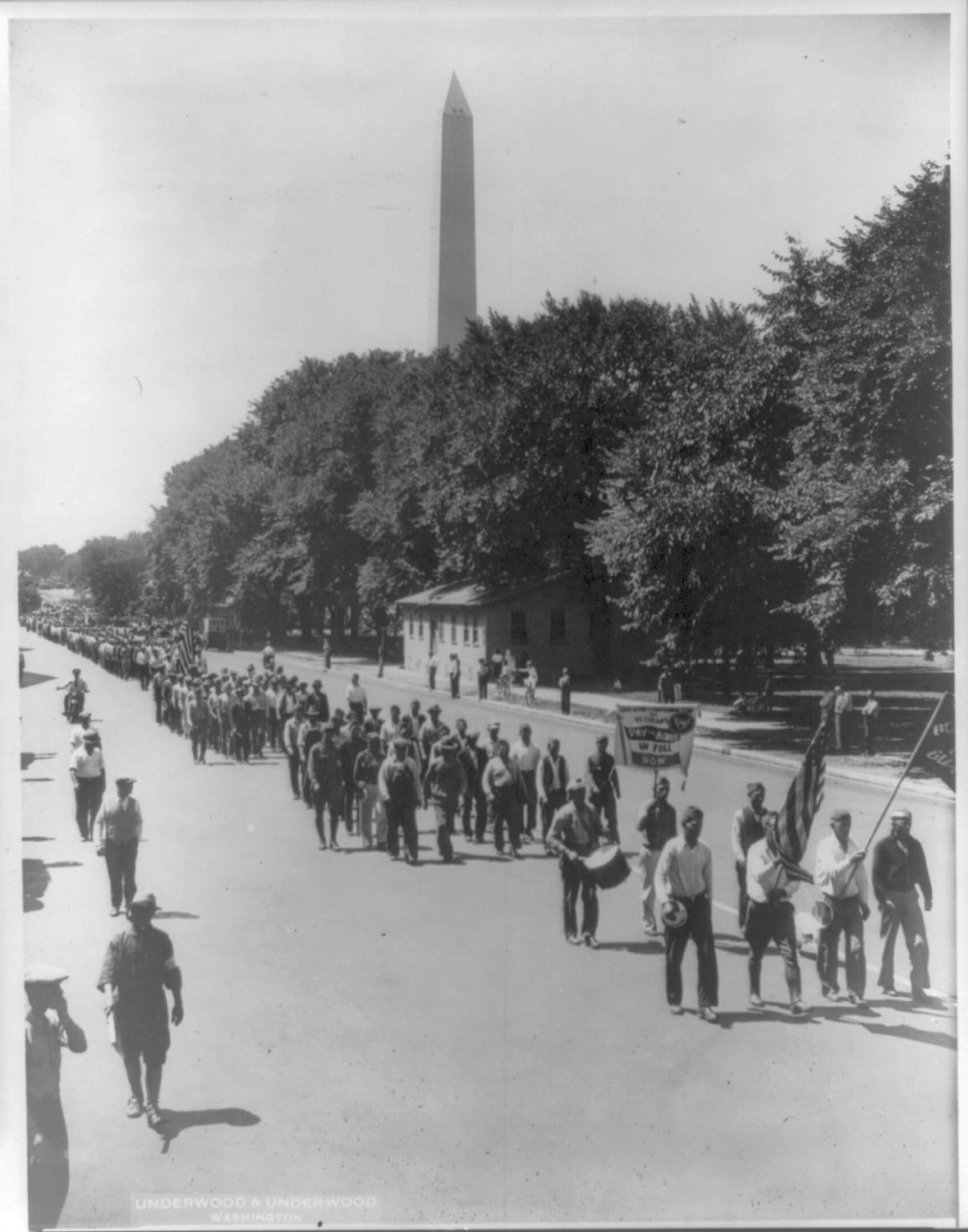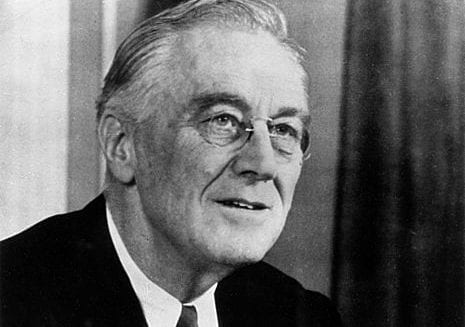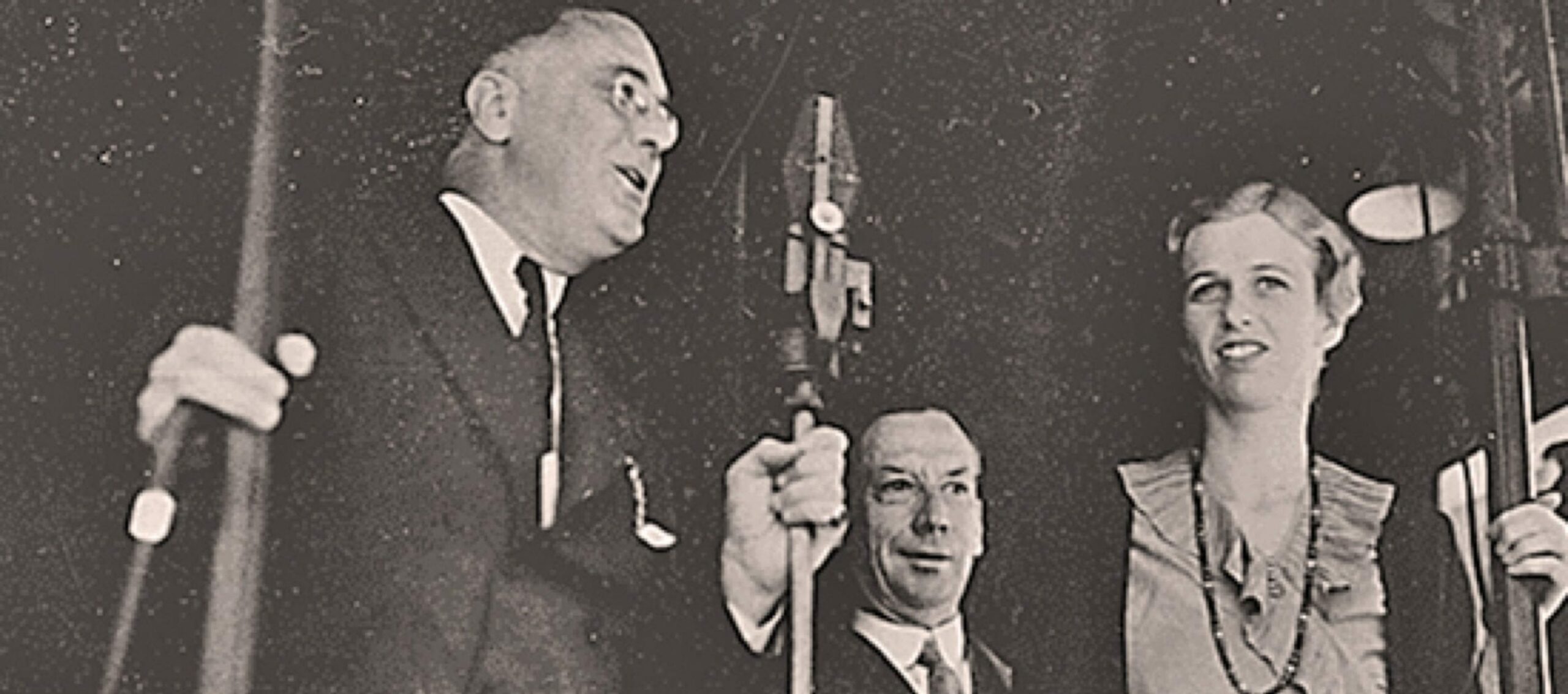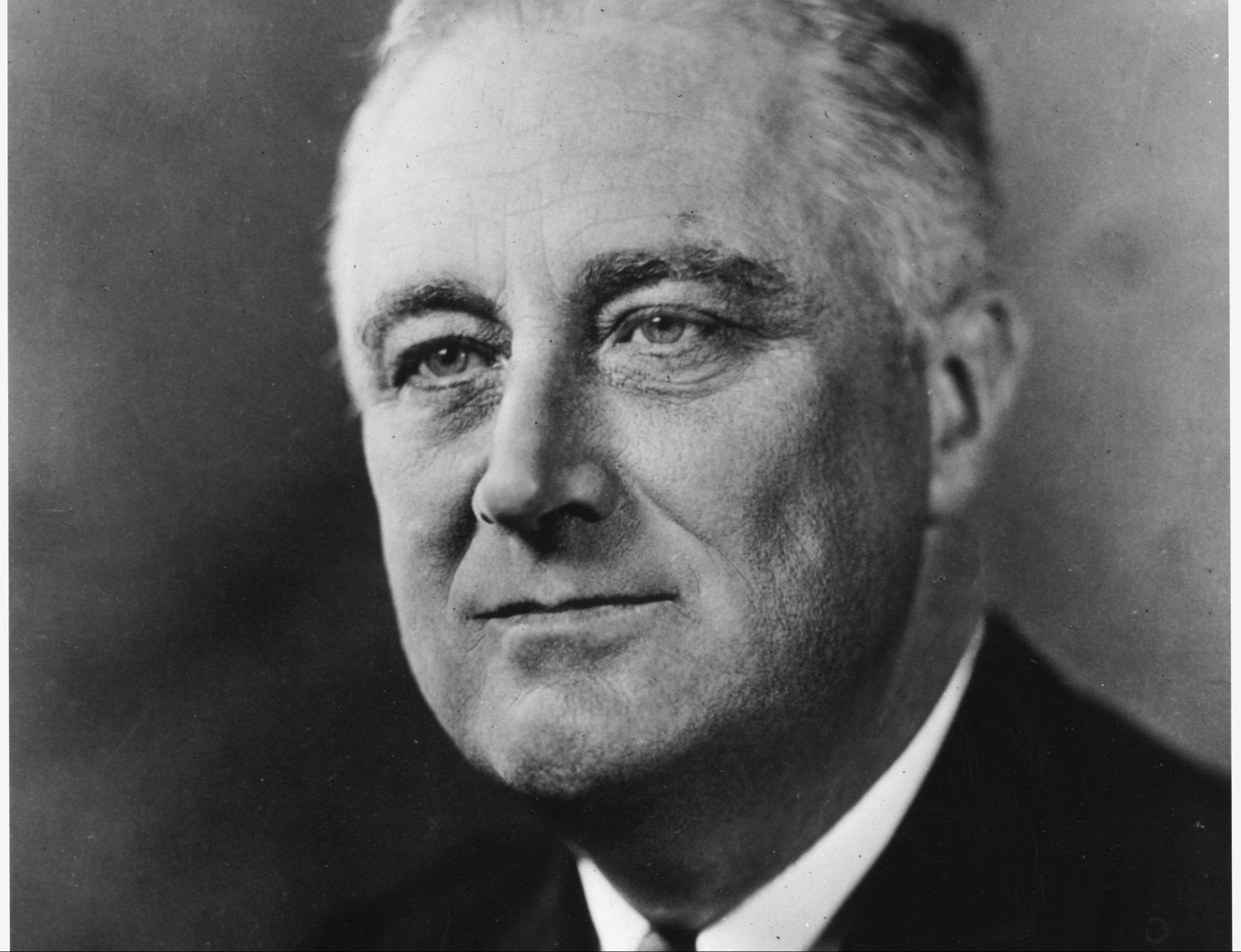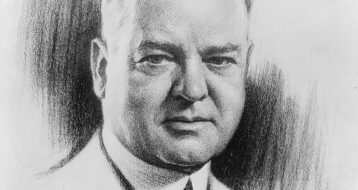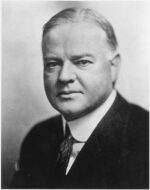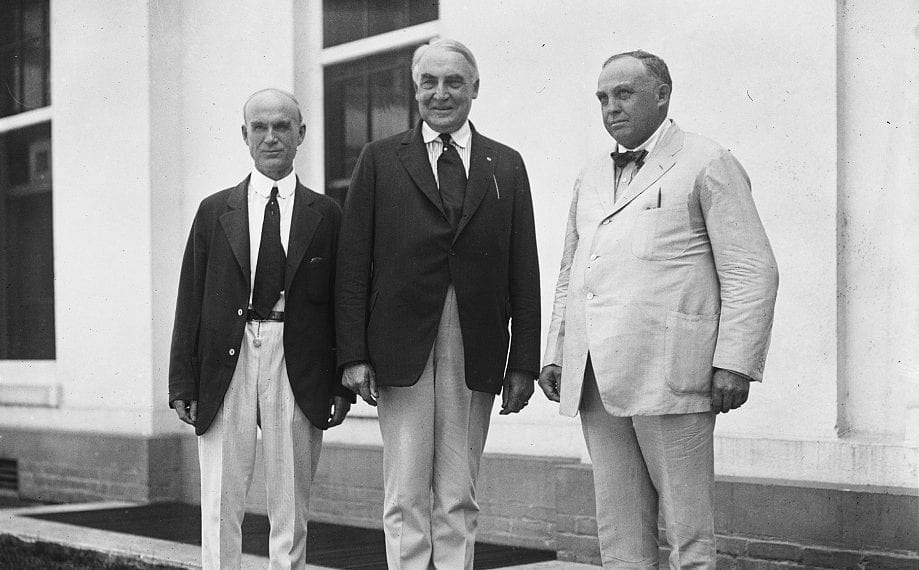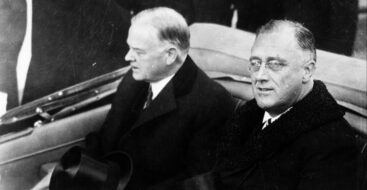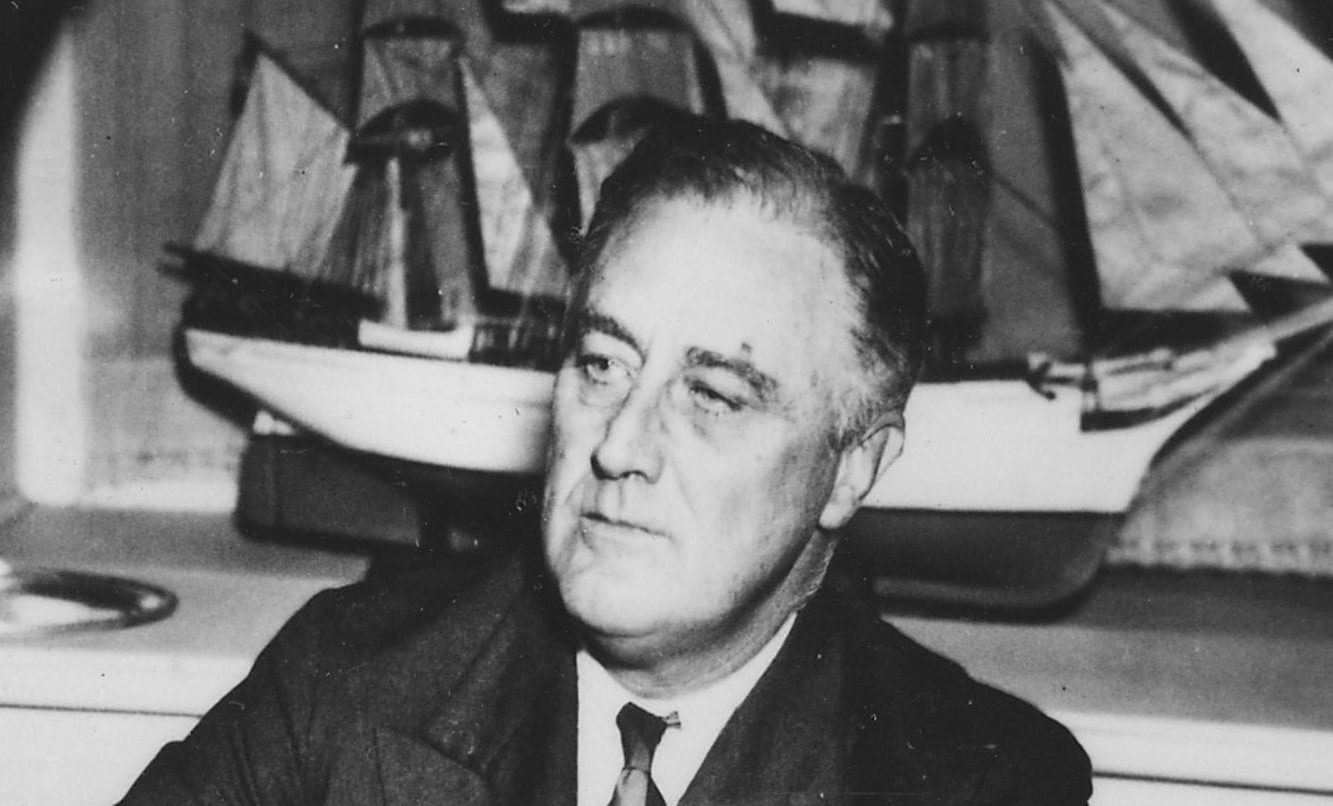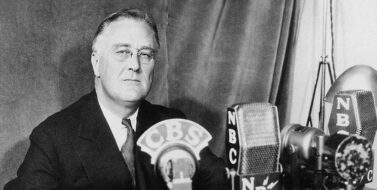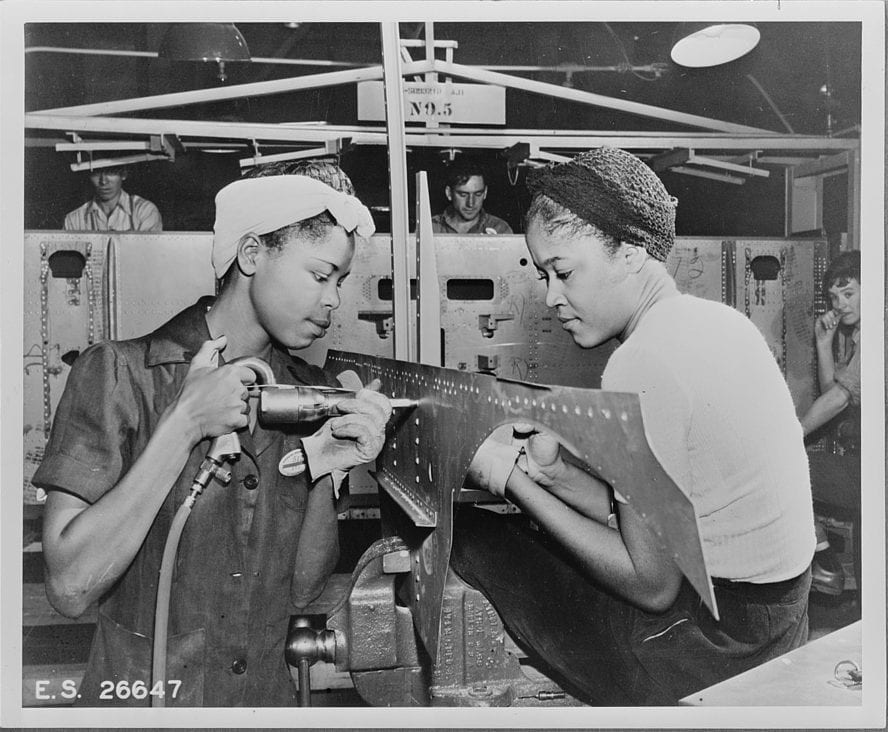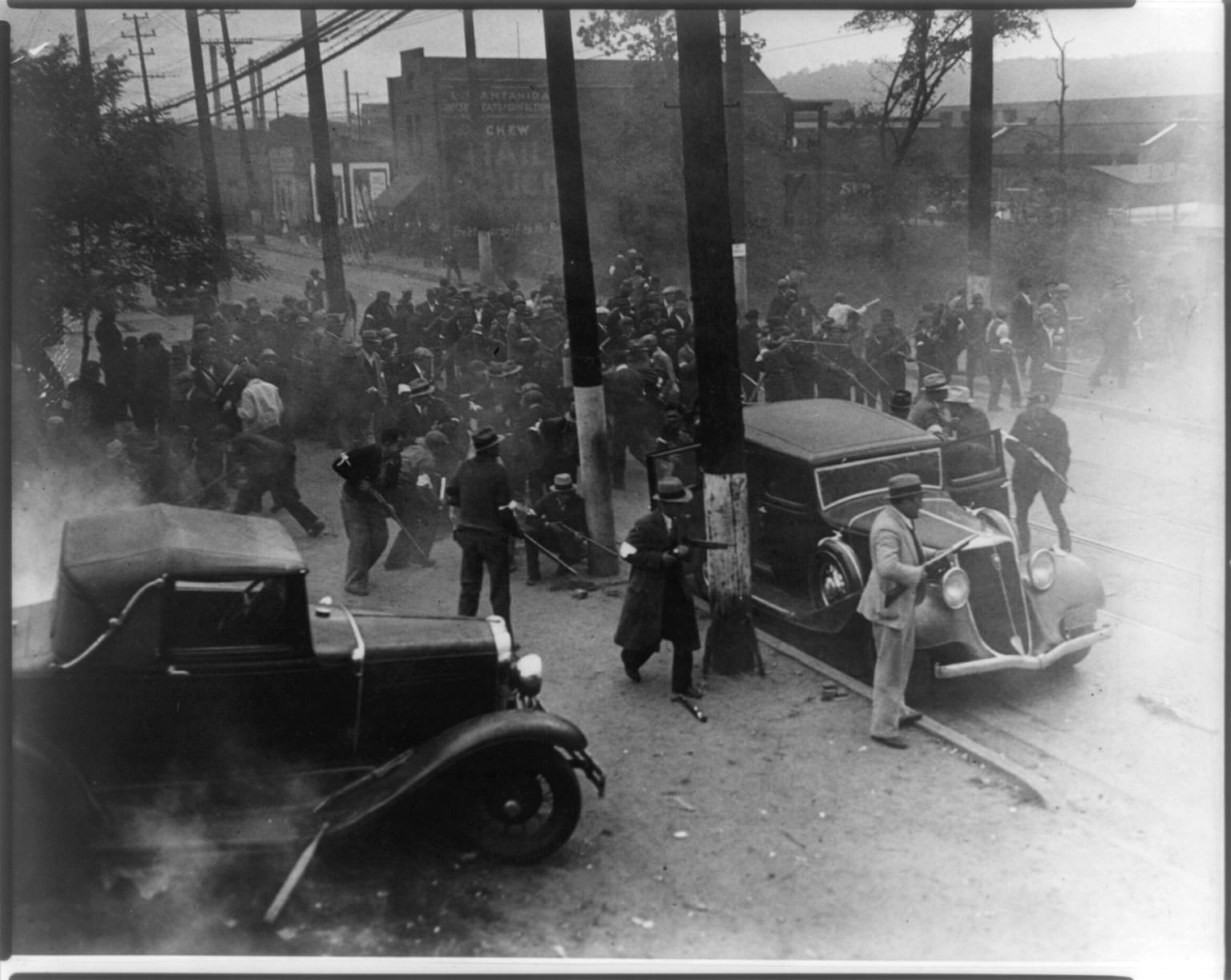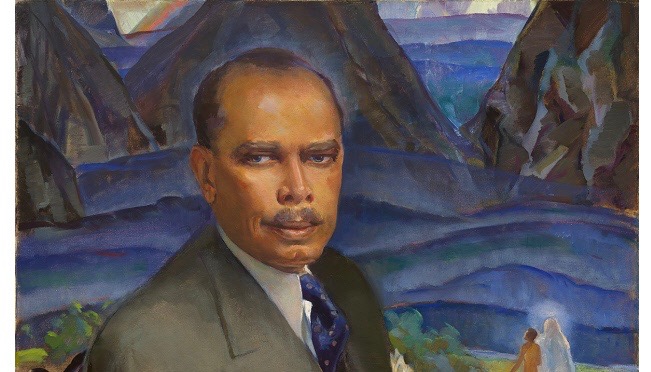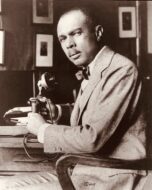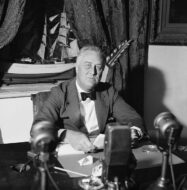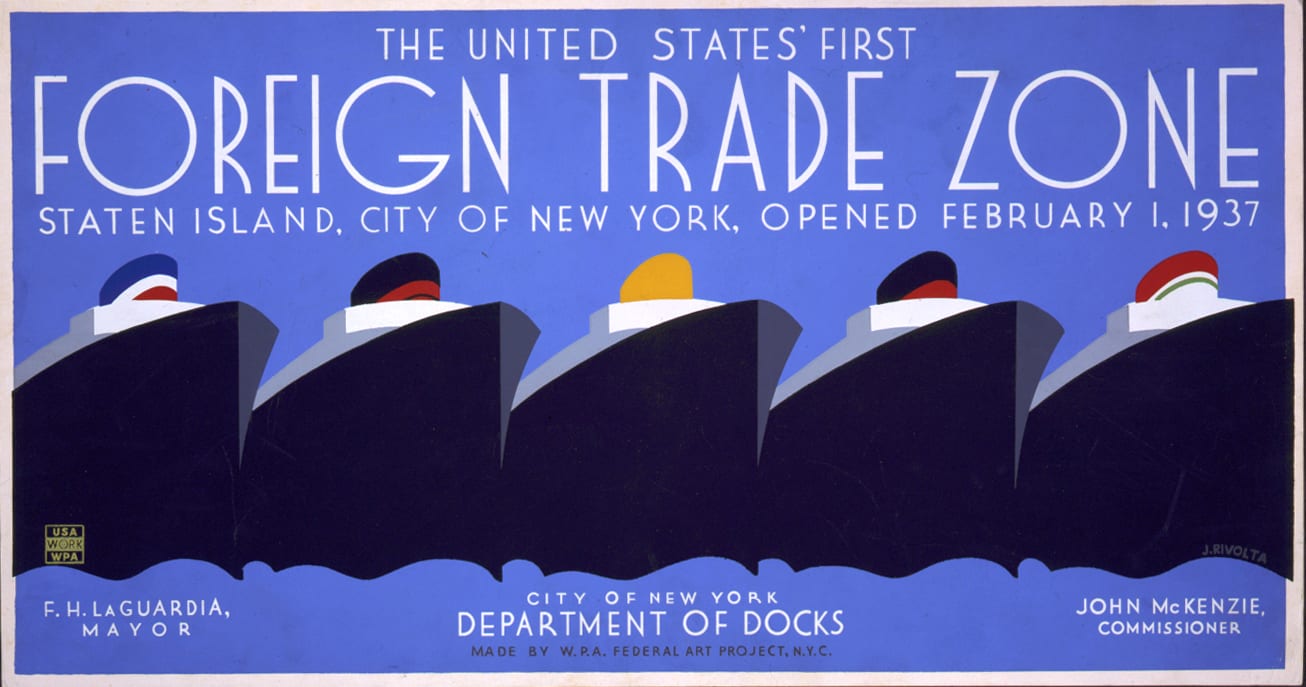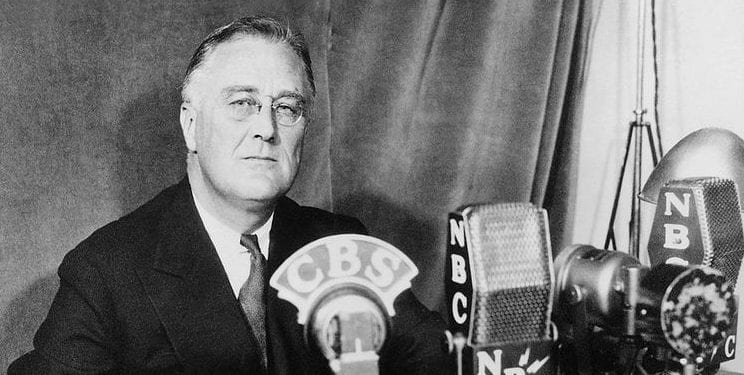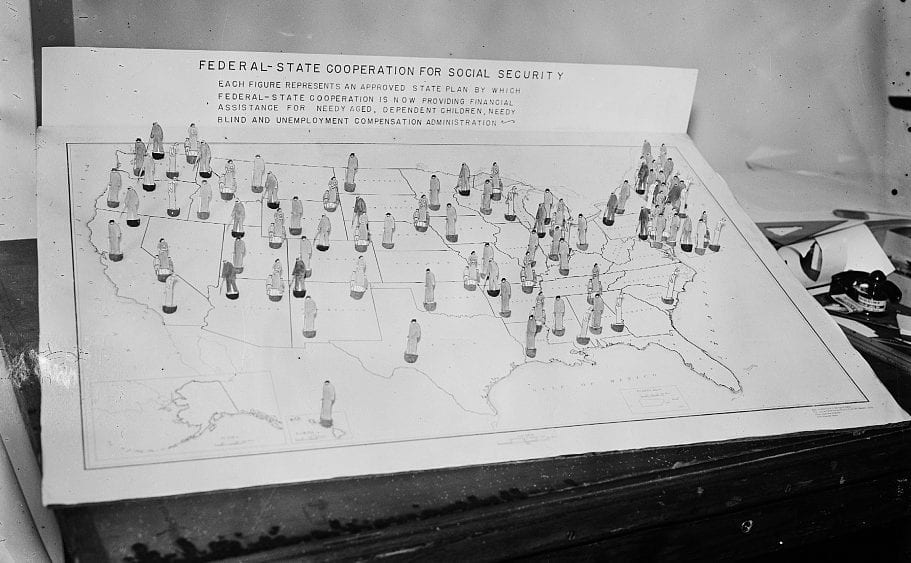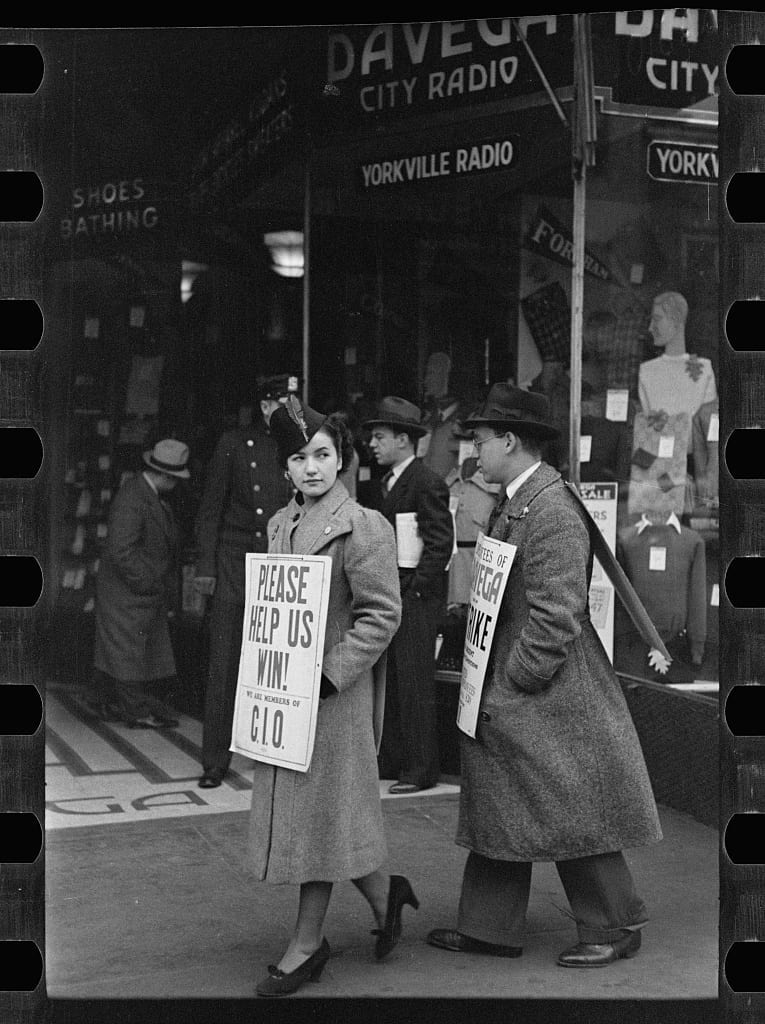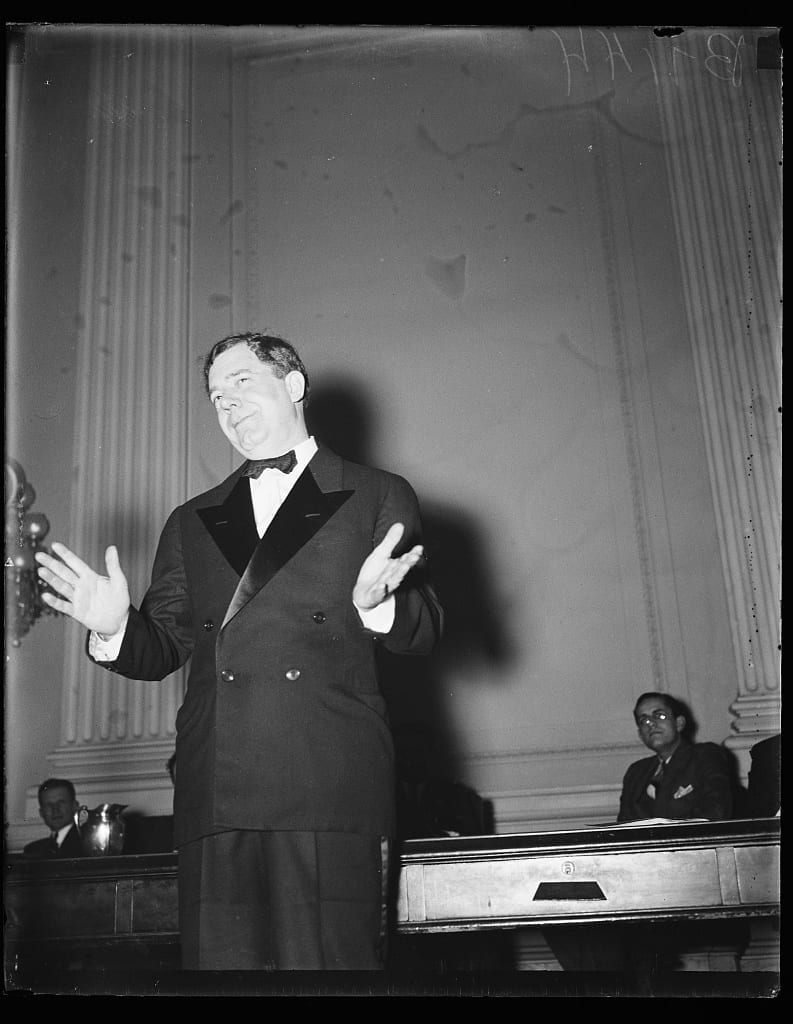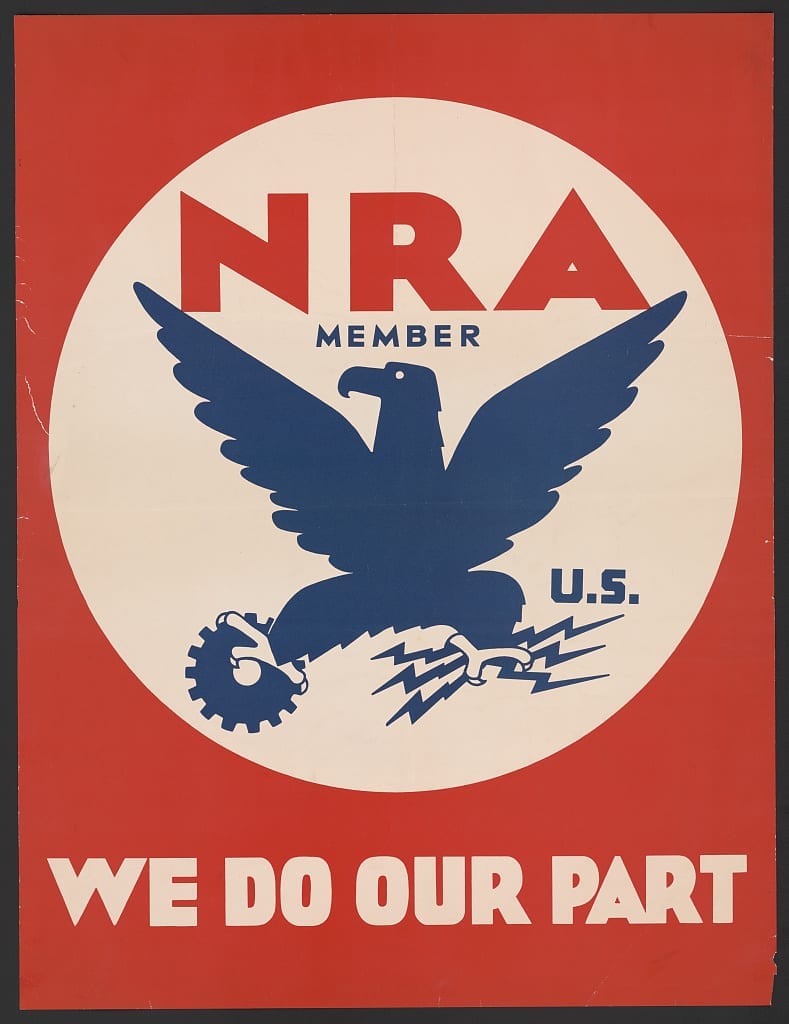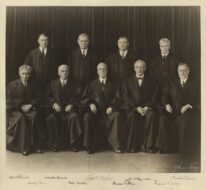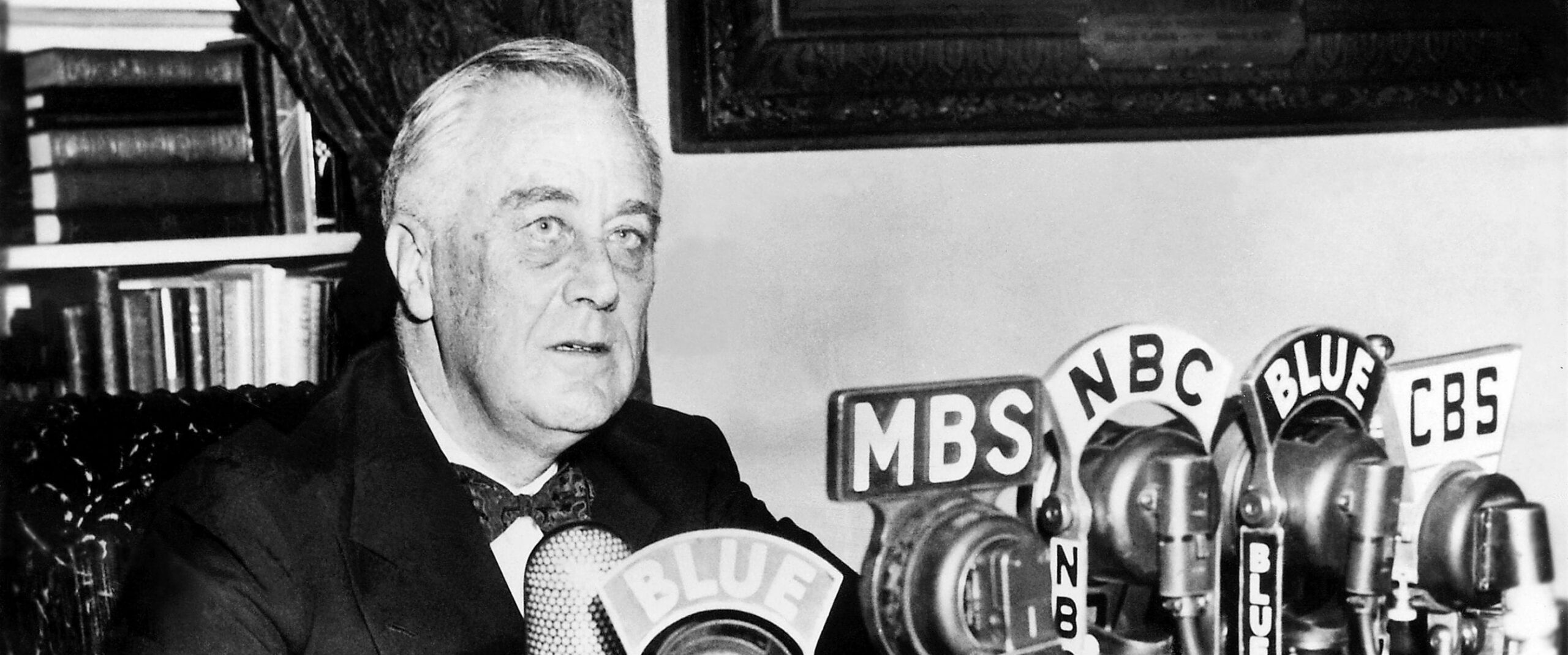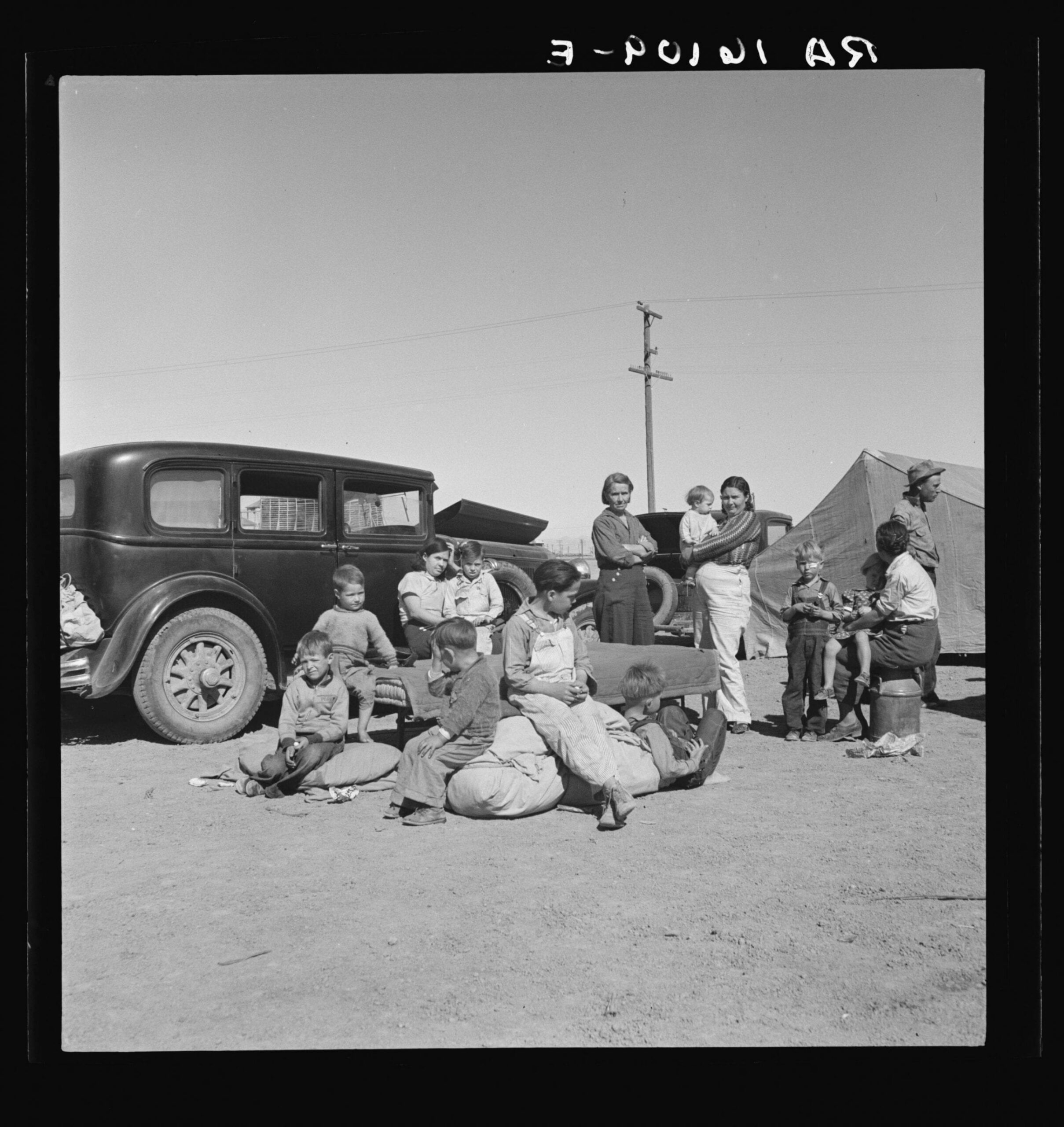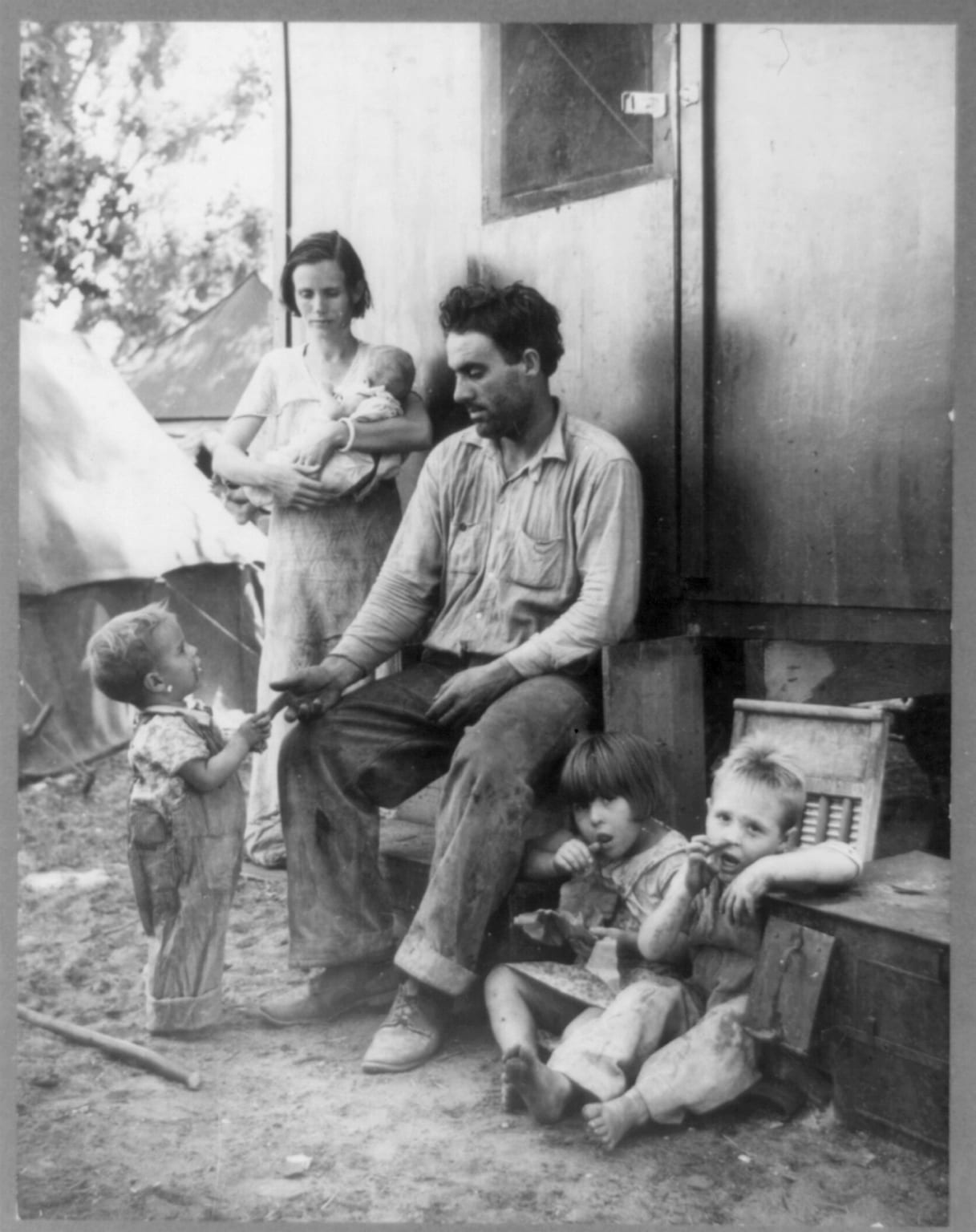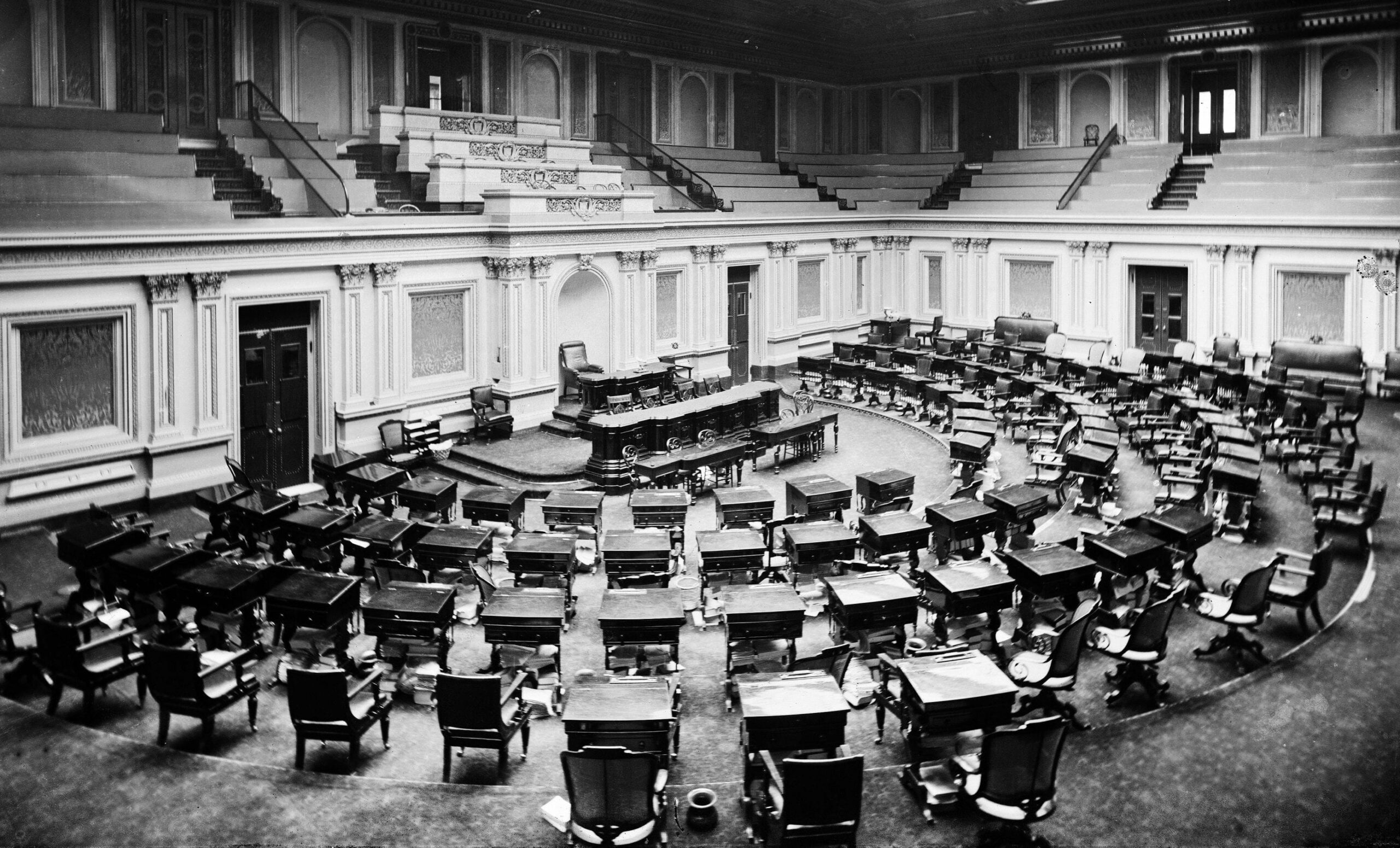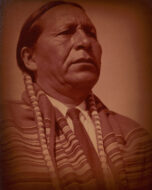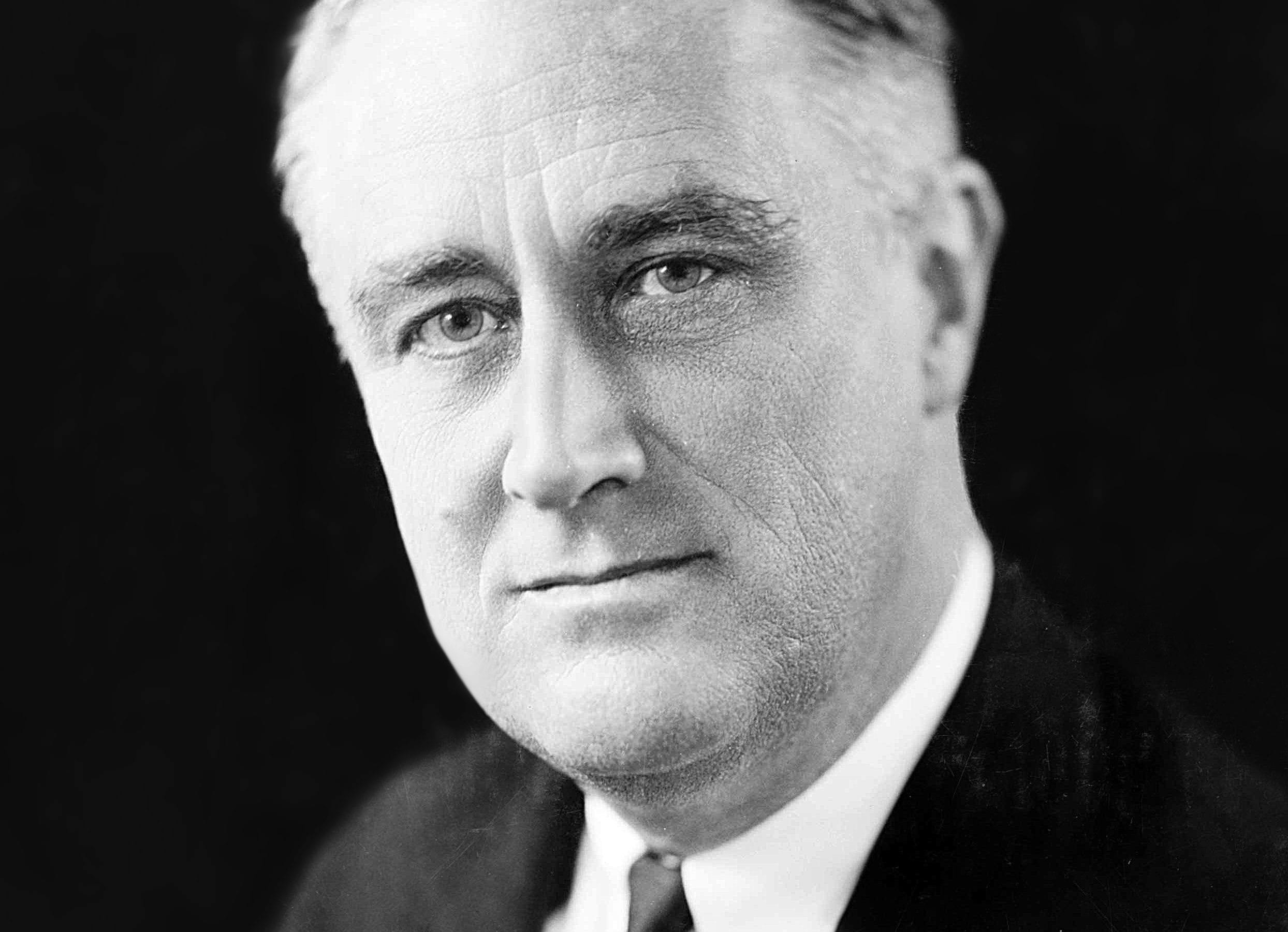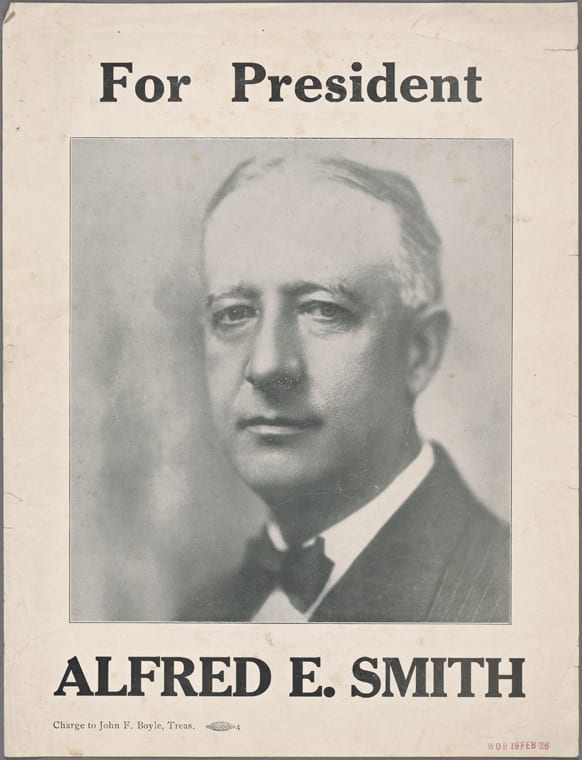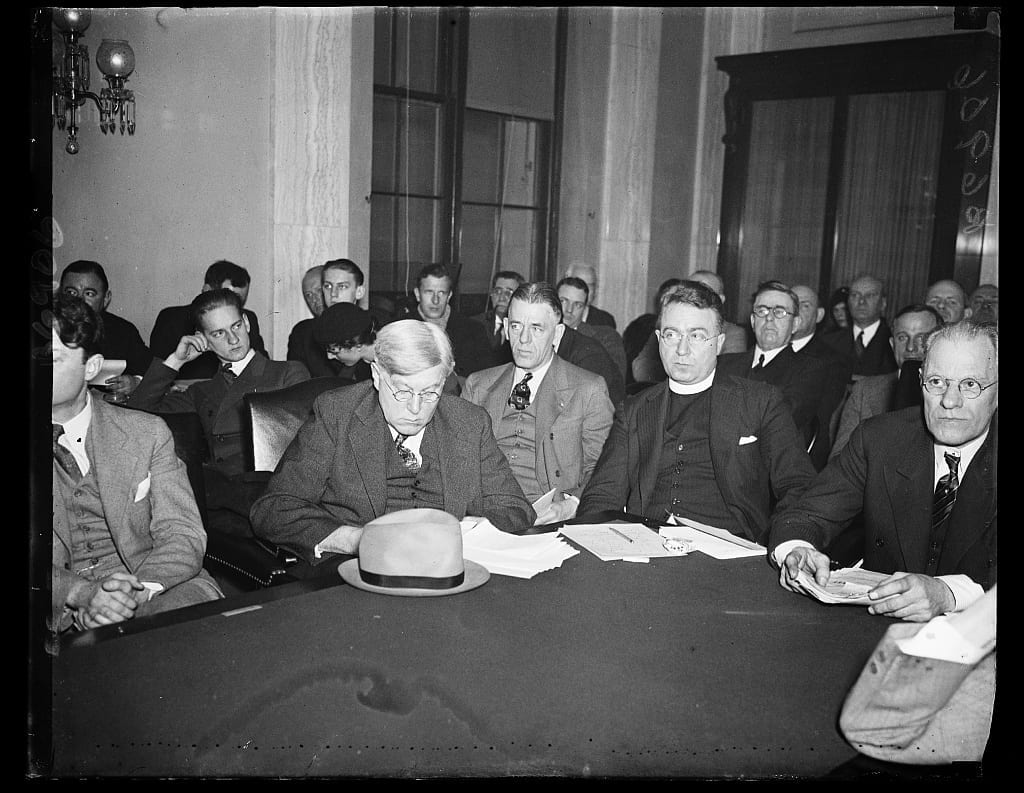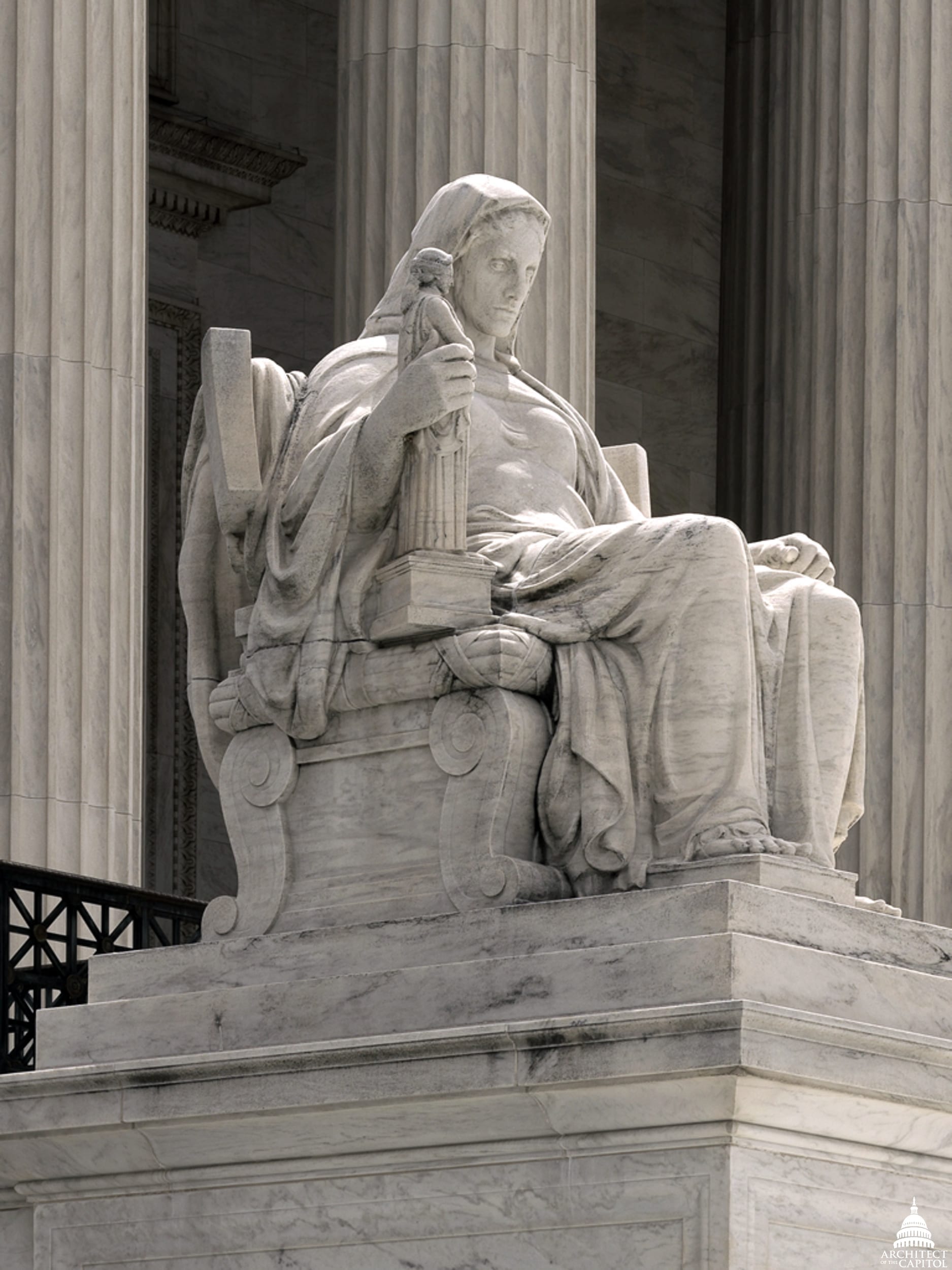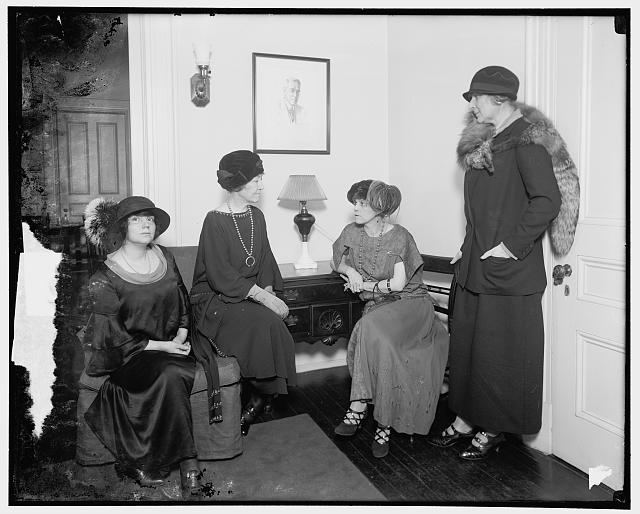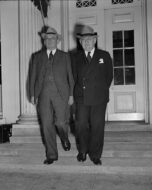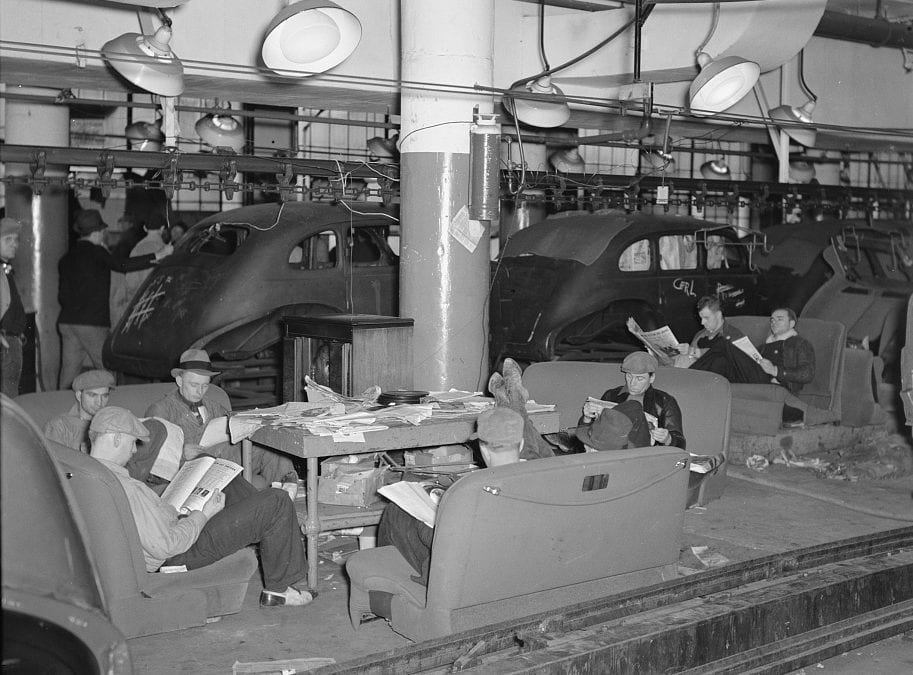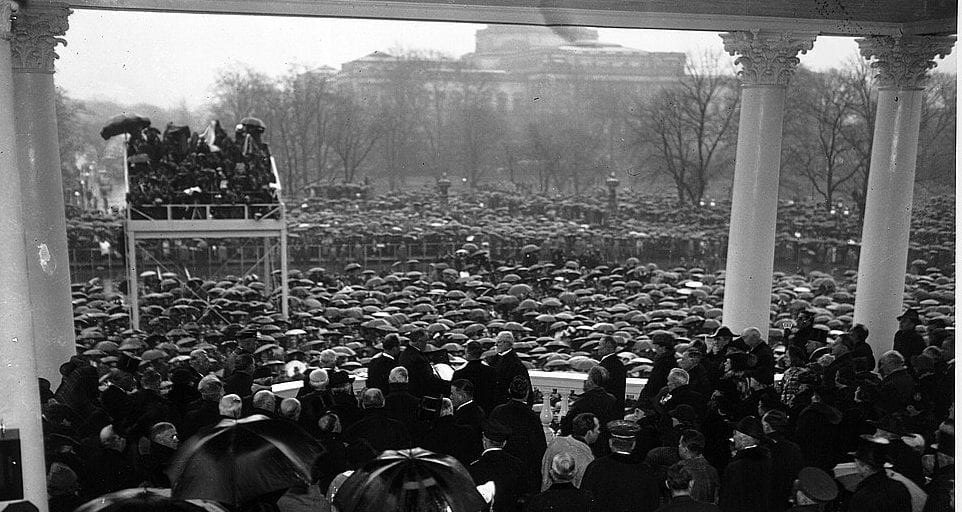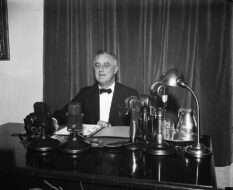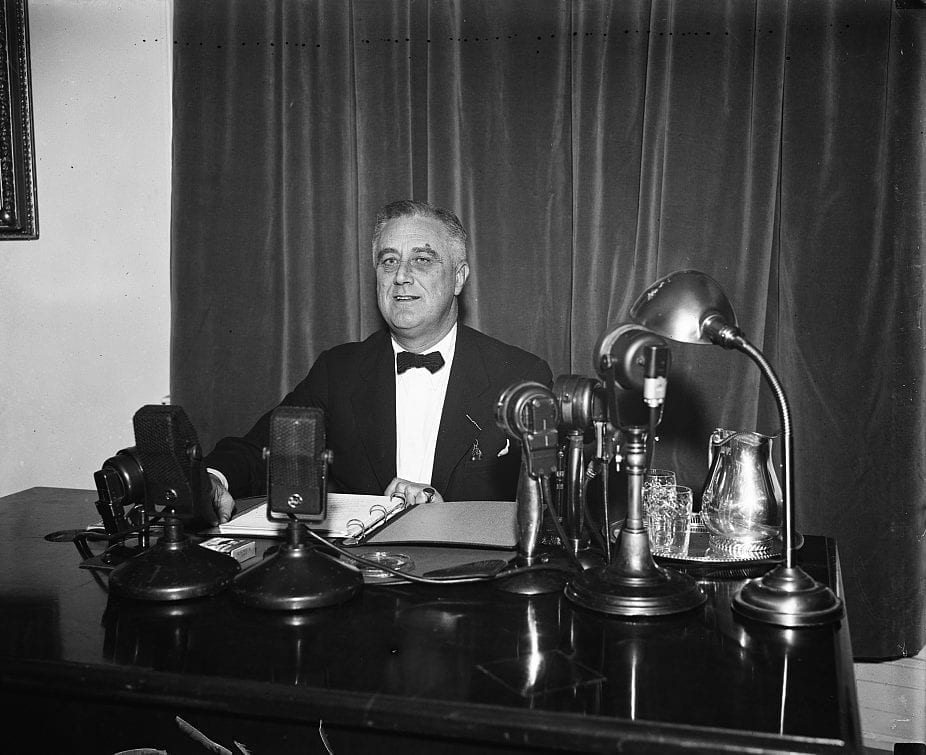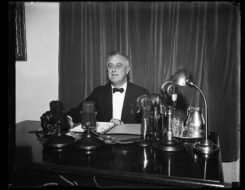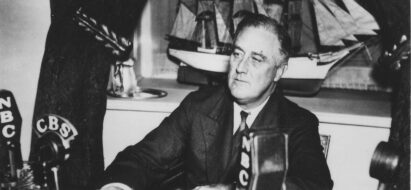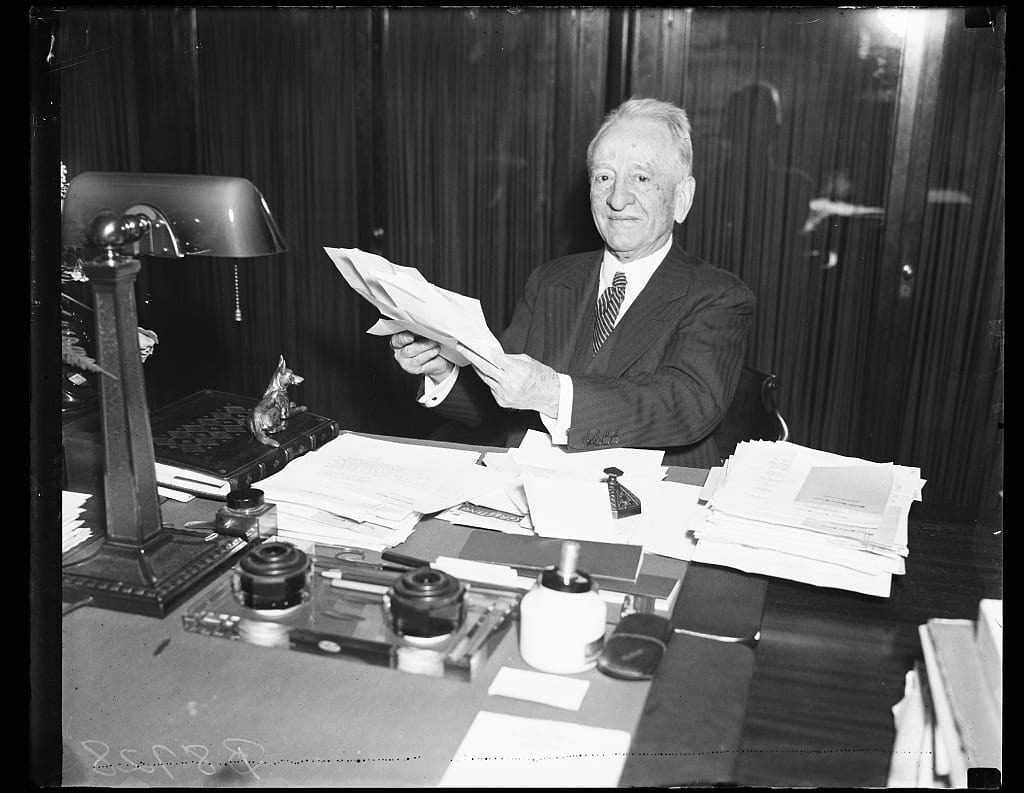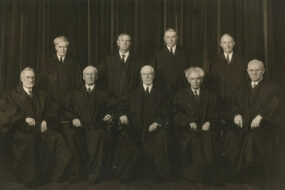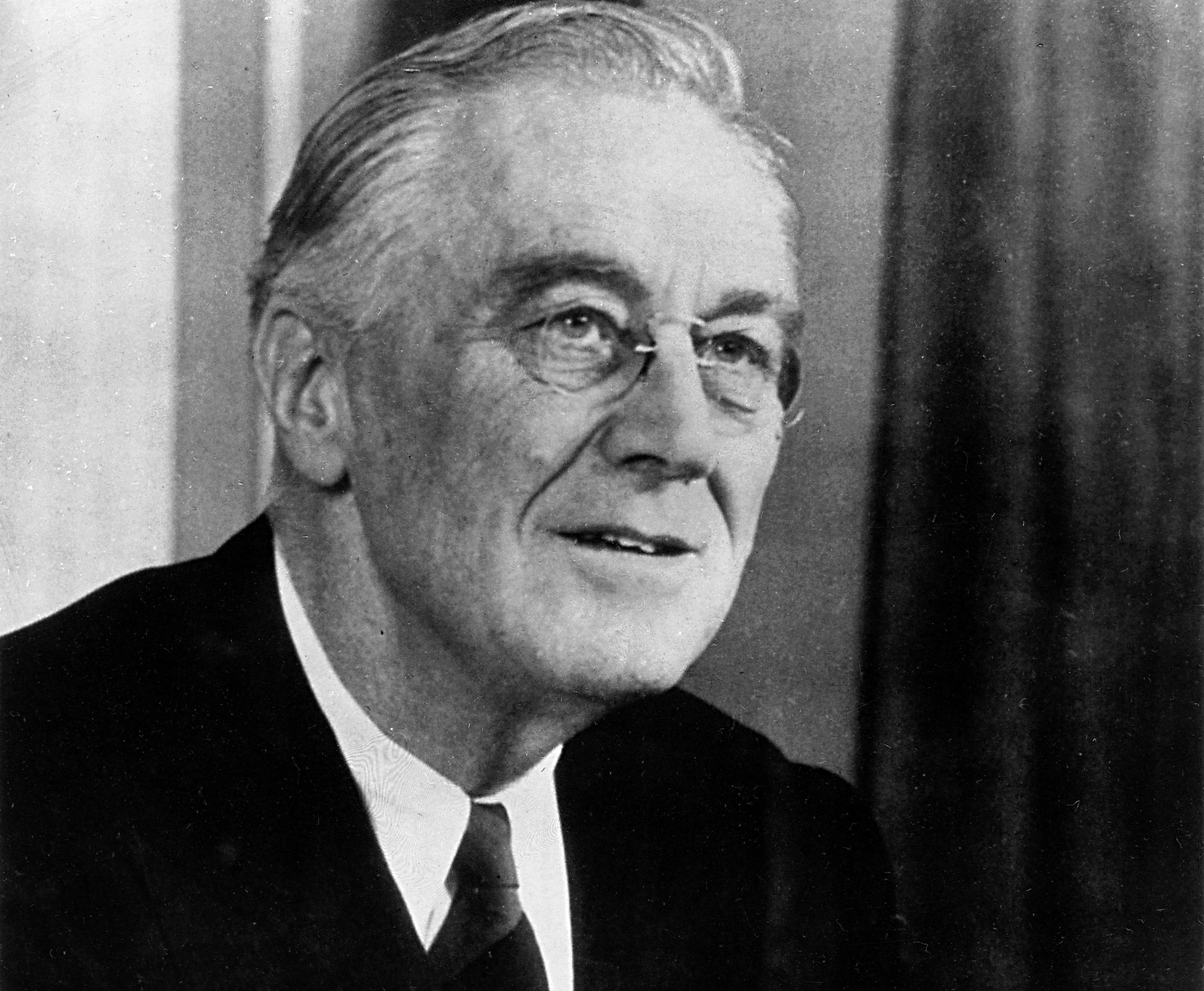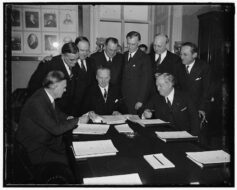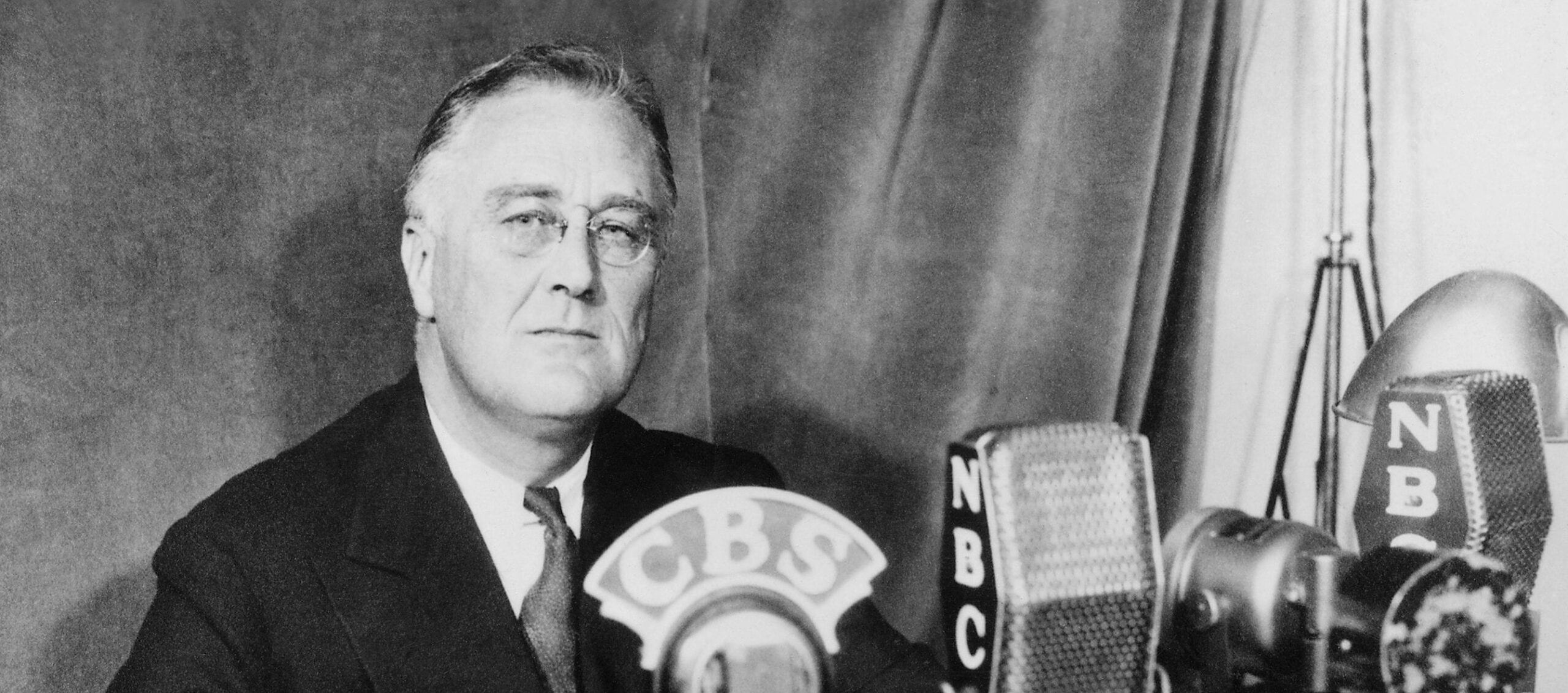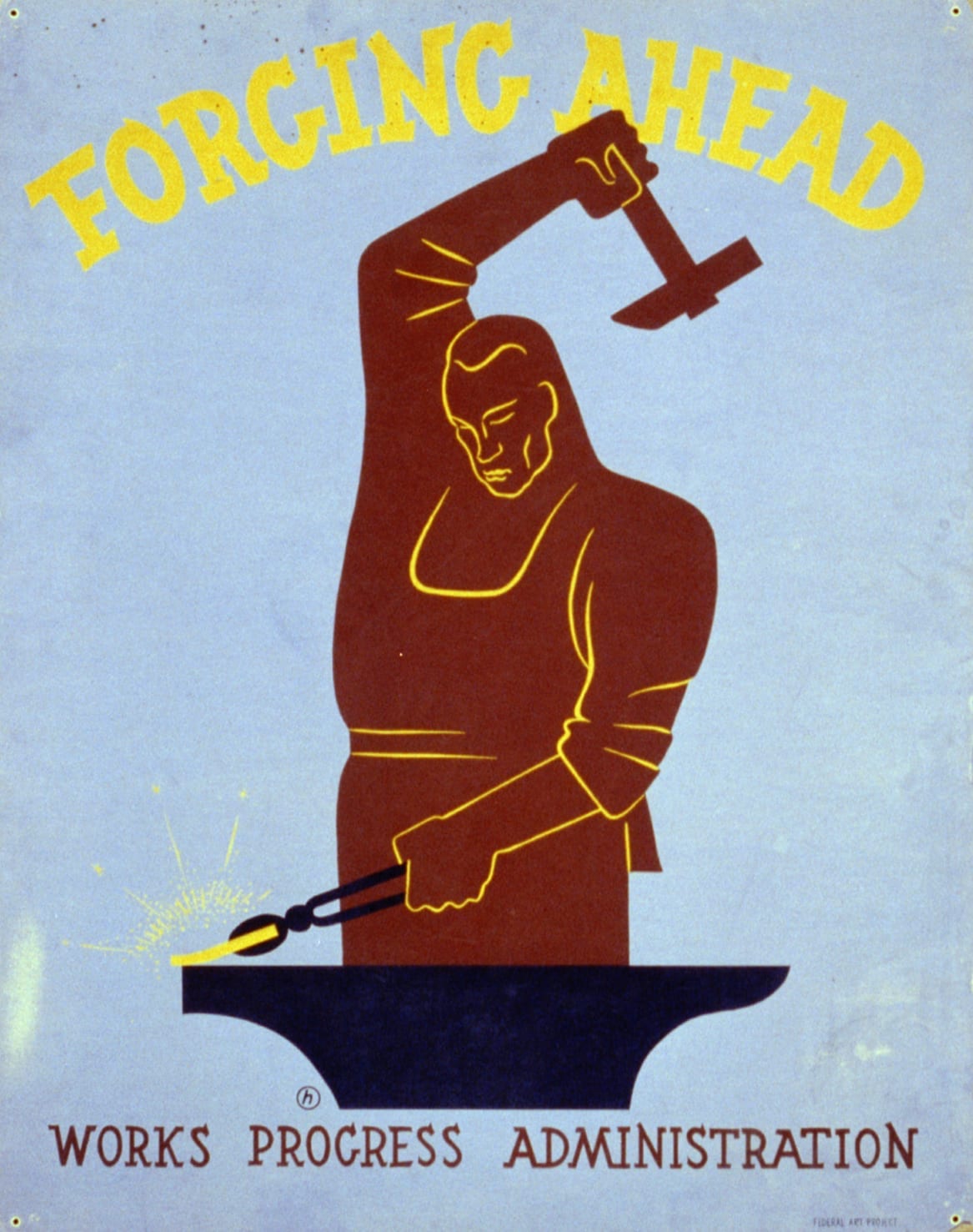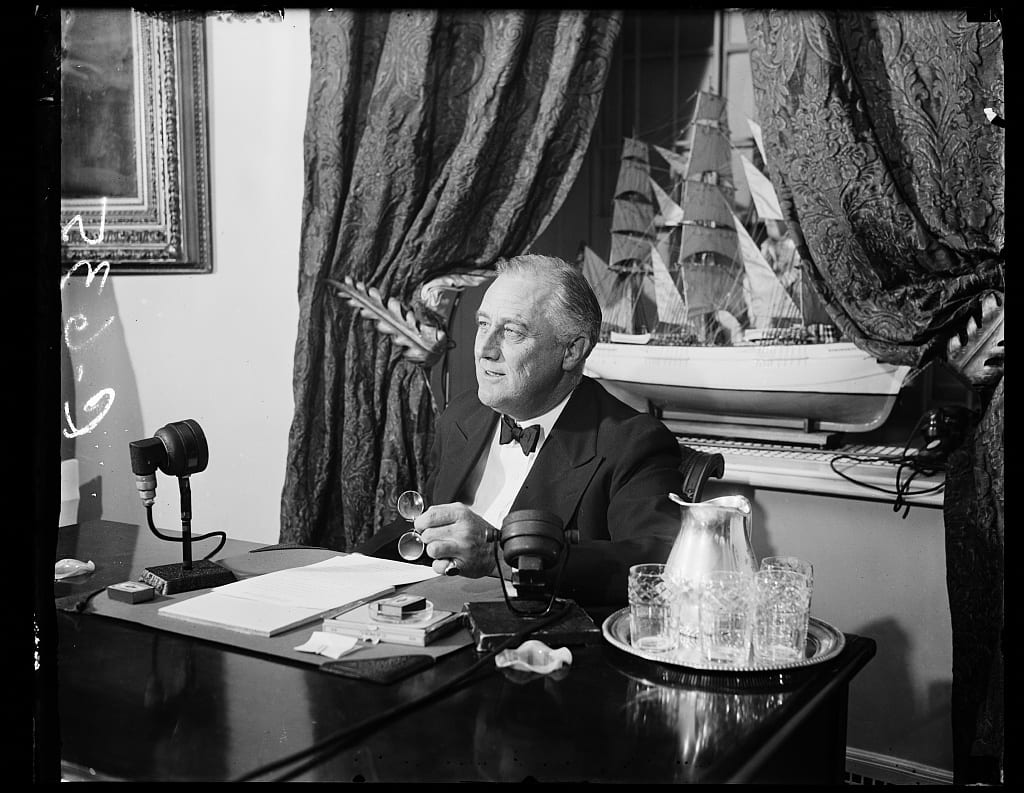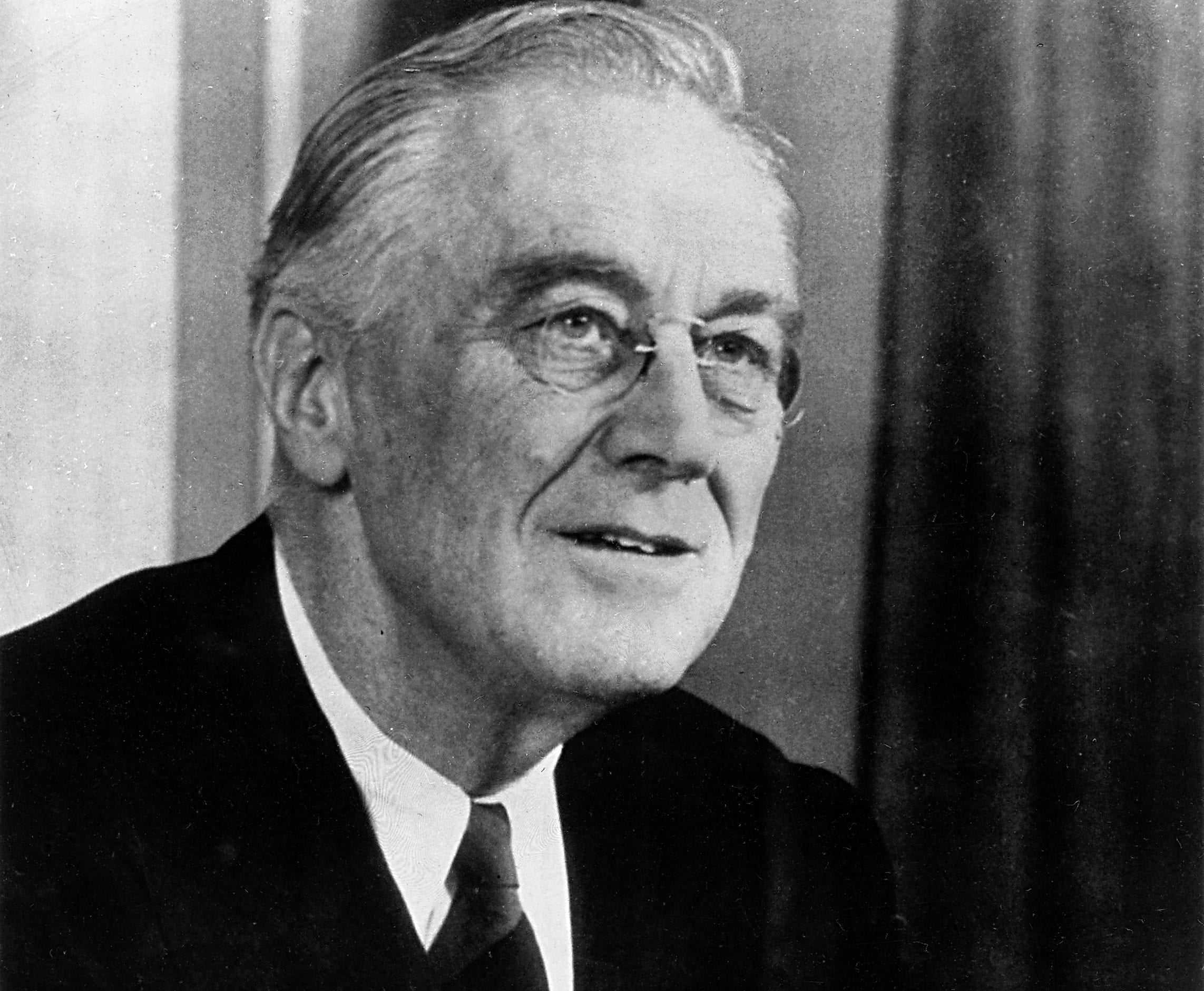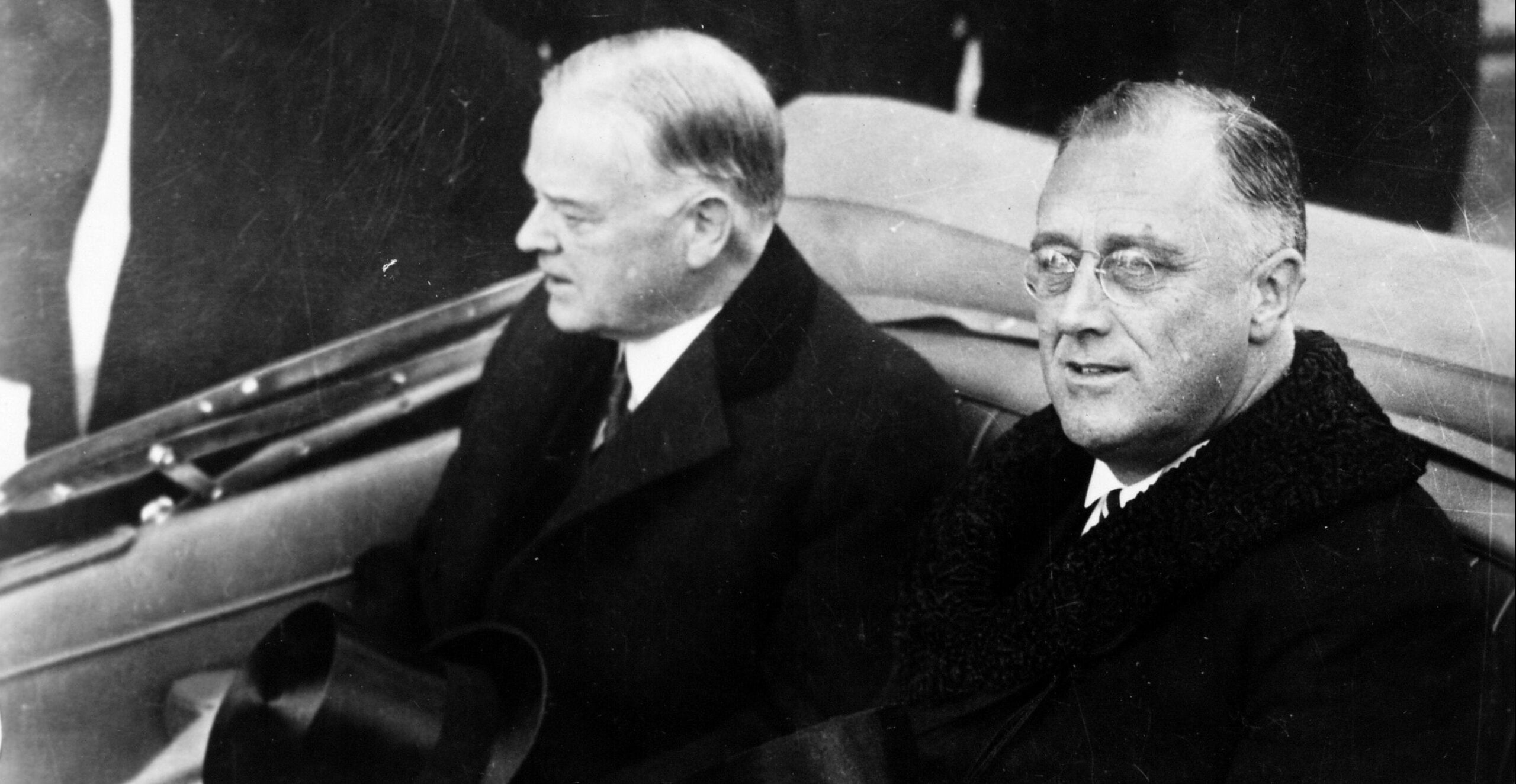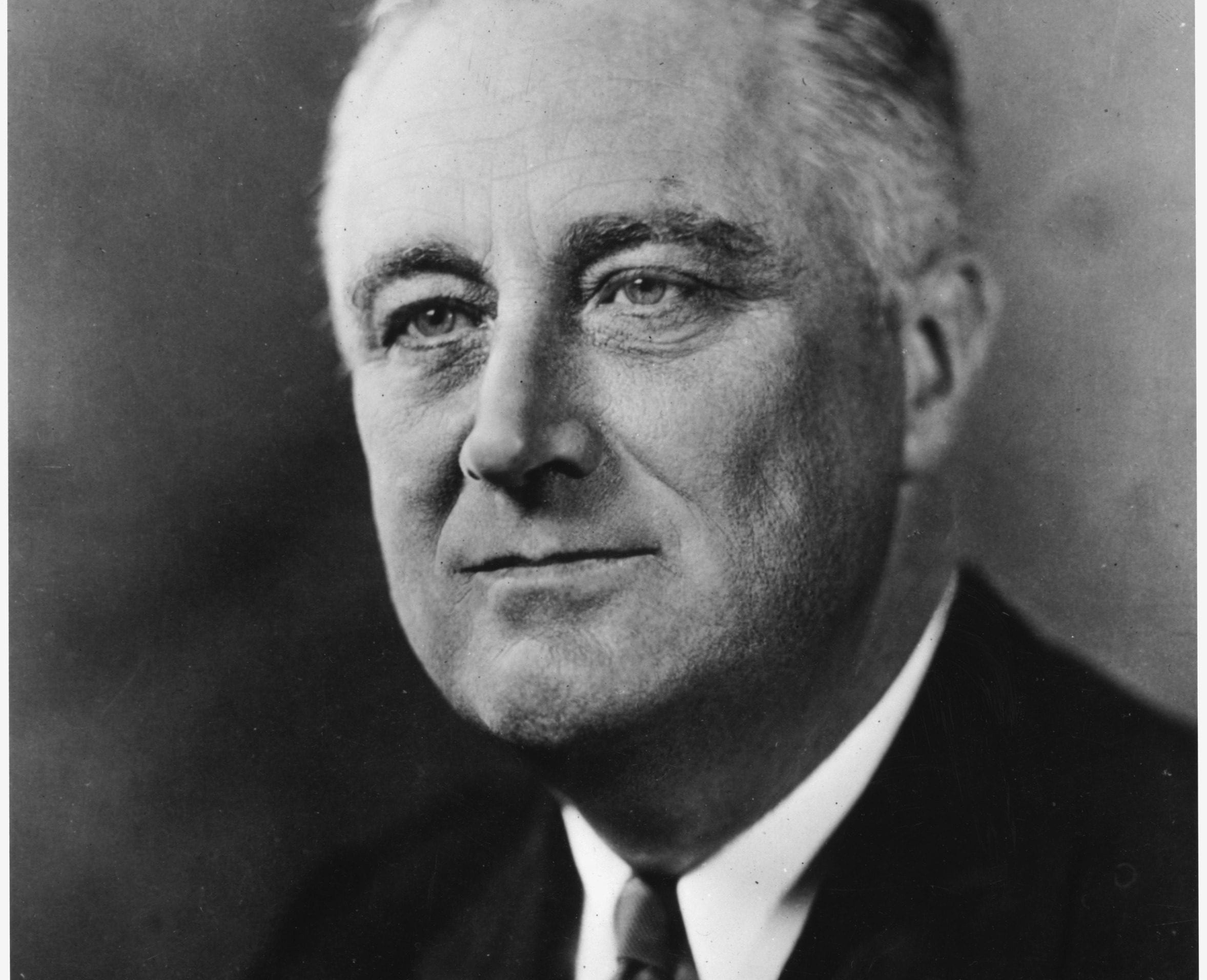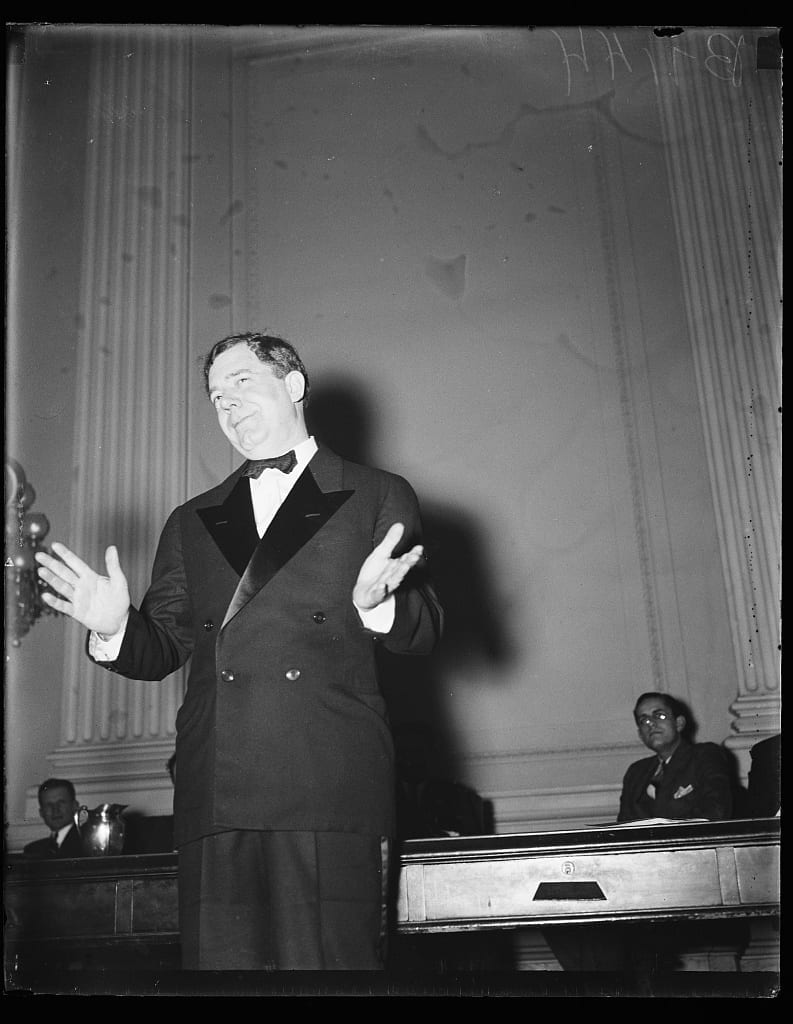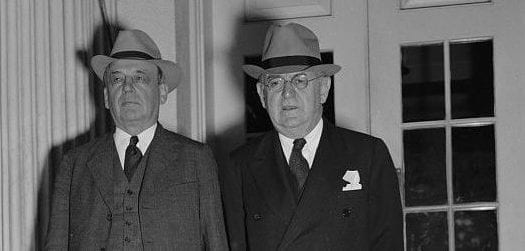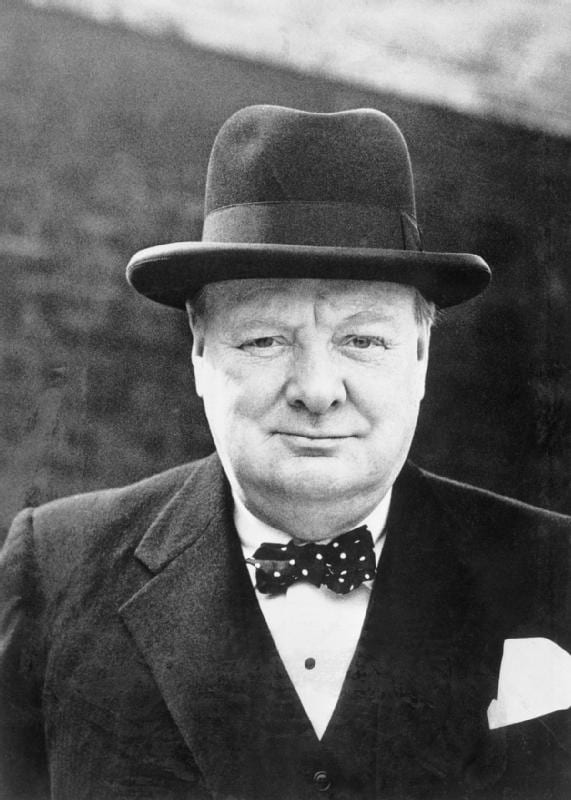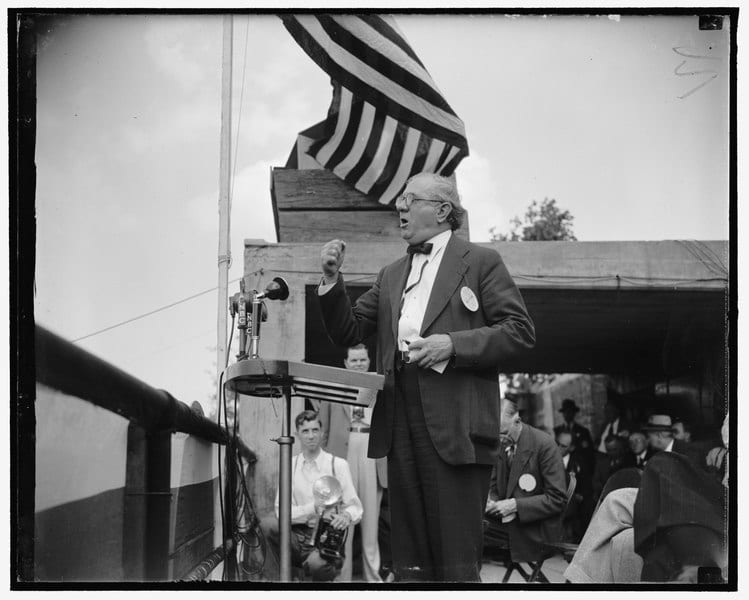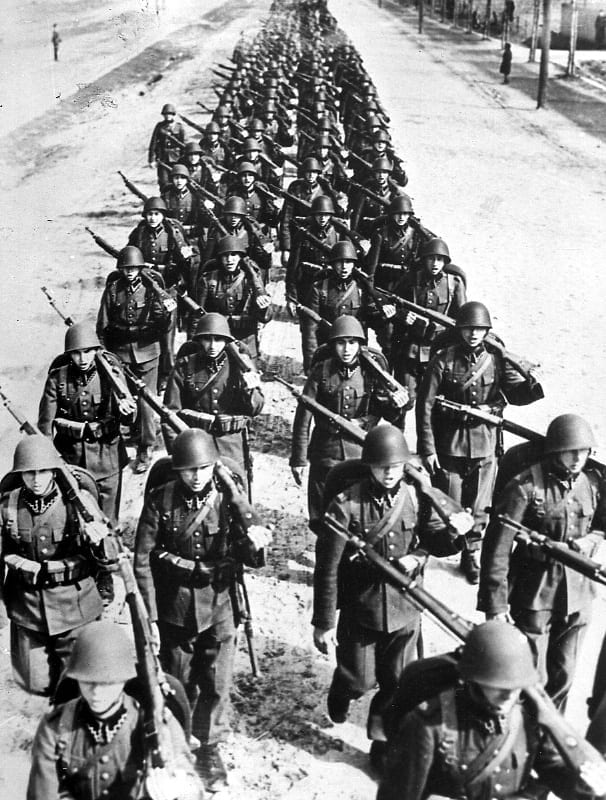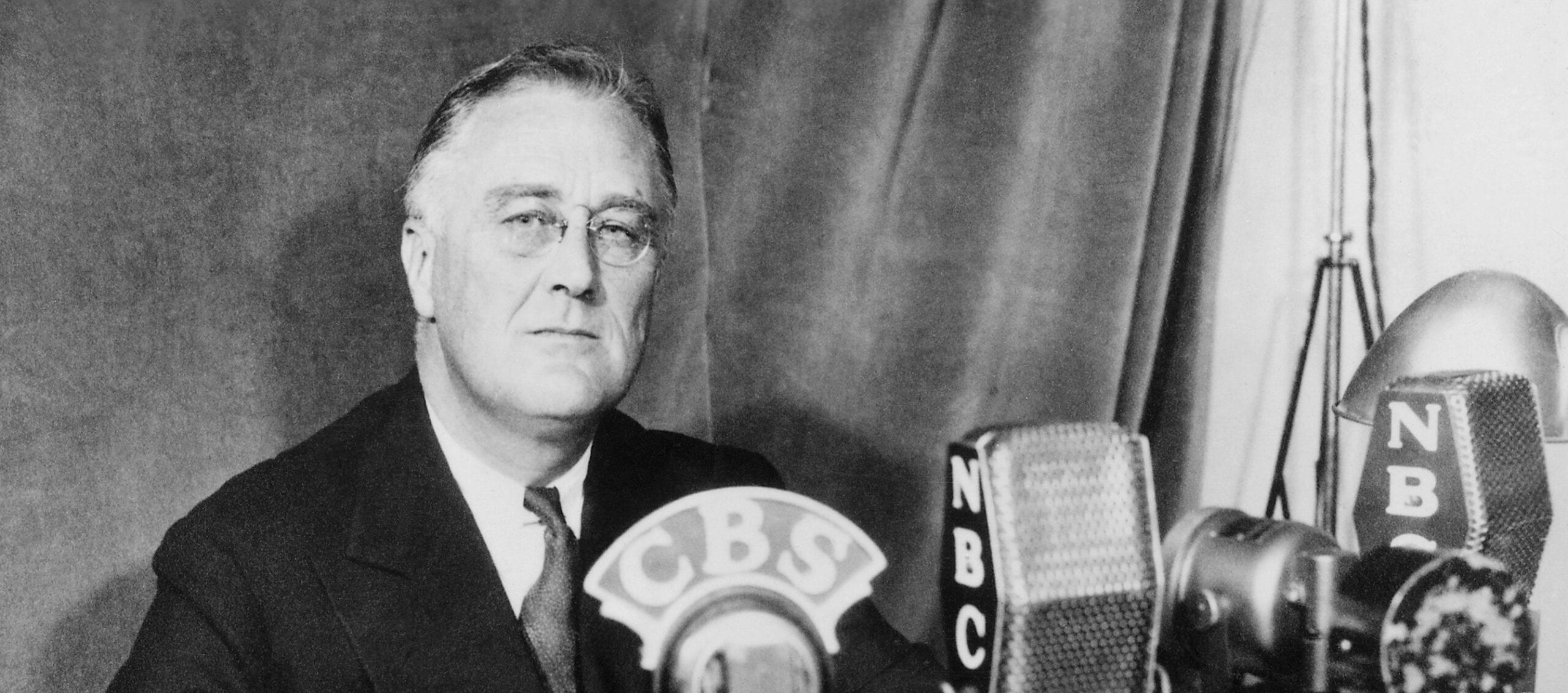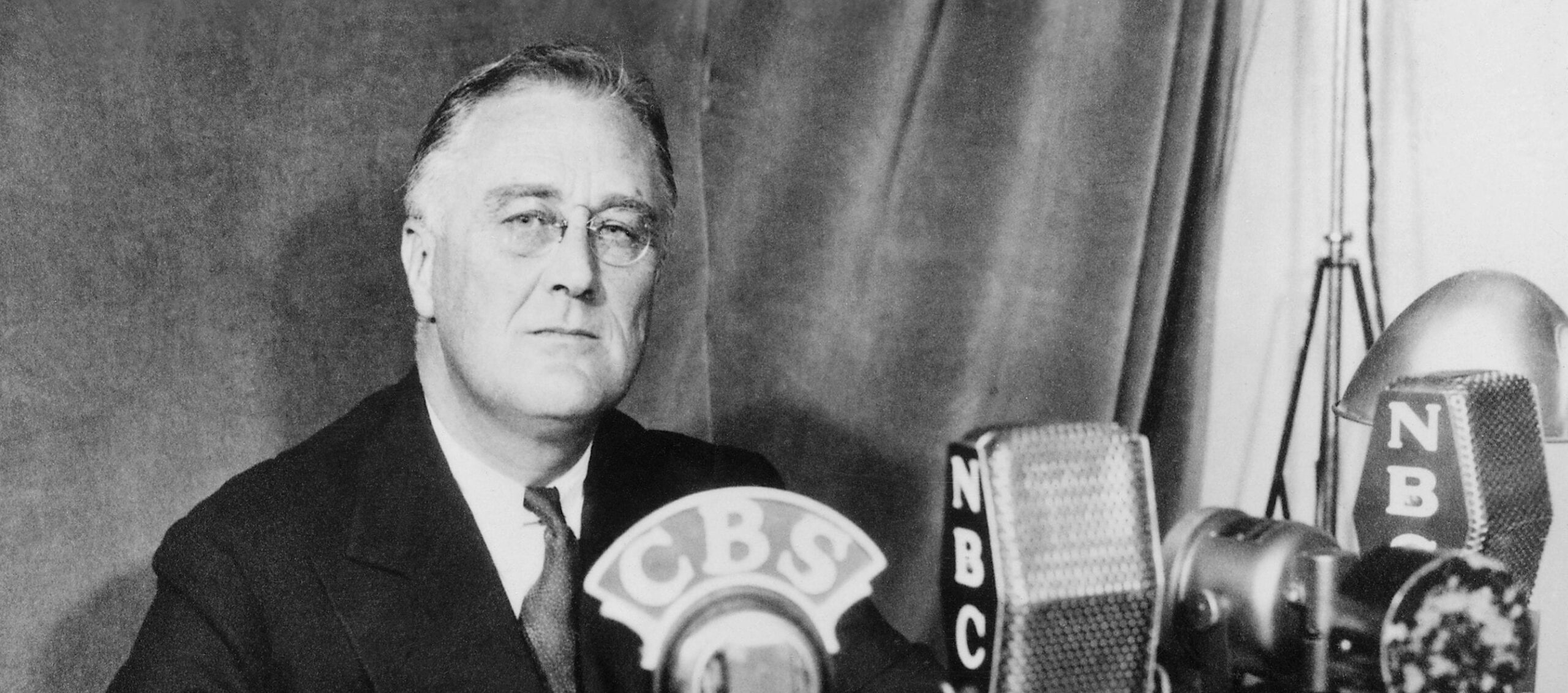


No related resources
Introduction
Republicans took heart from the Supreme Court’s invalidation of the National Industrial Recovery Act, Agricultural Adjustment Act (Schechter Poultry Corp. v. United States (1935); United States v. Butler (1936)), and several other New Deal measures, and looked to the 1936 election for the final repudiation of President Roosevelt’s agenda. However, they faced an uphill fight, as the economy was visibly improving. Gross domestic product was fifty percent higher in 1936 than it had been when Roosevelt took office, and although unemployment remained high at 16.8 percent, it was considerably lower than it had been in 1933, when it stood at 24.75 percent. Moreover, the Republican nominee – Kansas Governor Alf Landon – was a poor campaigner who rarely traveled outside his home state. Nevertheless, leading Republicans jumped into the fight with gusto, and chief among them was former president Herbert Hoover. In the following speech, which he delivered during the final days of the campaign, he called the New Deal a “repudiation of Democracy.”
Source: Herbert Hoover, Addresses Upon the American Road, 1933-1938 (New York: Charles Scribner’s Sons, 1938), p. 216 - 227. Available online from Herbert Hoover Presidential Library. https://teachingamericanhistory.org/0ljd.
. . . . Through four years of experience this New Deal attack upon free institutions has emerged as the transcendent issue in America.
All the men who are seeking for mastery in the world today are using the same weapons. They sing the same songs. They all promise the joys of Elysium1 without effort. But their philosophy is founded on the coercion and compulsory organization of men. True liberal government is founded on the emancipation of men. This is the issue upon which men are imprisoned and dying in Europe right now.
The rise of this issue has dissolved our old party lines. The New Deal repudiation of Democracy has left the Republican Party alone the guardian of the Ark of the Covenant2 with its charter of freedom. The tremendous import of this issue, the peril to our country has brought the support of the ablest leaders of the Democratic Party. It is no passing matter which enlists side by side the fighting men who have opposed each other over many years. It is the unity demanded by a grave danger to the Republic. . . .
I realize that this danger of centralized personal government disturbs only thinking men and women. But surely the NRA3 and the AAA4 alone, should prove what the New Deal philosophy of government means even to those who don’t think.
In these instances the Supreme Court, true to their oaths to support the Constitution, saved us temporarily. But Congress in obedience to their oaths should never have passed these acts. The President should never have signed them. But far more important than that, if these men were devoted to the American system of liberty they never would have proposed acts based on the coercion and compulsory organization of men.
Freedom does not die from frontal attack. It dies because men in power no longer believe in a system based upon Liberty.
Mr. Roosevelt on this eve of election has started using the phrases of freedom. He talks sweetly of personal liberty, of individualism, of the American system, of the profit system. He says now that he thinks well of capitalism, and individual enterprise. His devotion to private property seems to be increasing. He has suddenly found some good economic royalists.5 And he is a staunch supporter of the Constitution. Two days ago he rededicated the Statue of Liberty in New York. She has been the forgotten woman.
Four years ago we also heard many phrases which turned out not to mean what they were thought to have meant. In order that we may be sure this time, will Mr. Roosevelt reply in plain words:
Does he propose to revive the nine acts which the Supreme Court has rejected as invasions of the safeguards of free men?
Has he abandoned his implied determination to change the Constitution? Why not tell the American people before election what change he proposes? Does he intend to stuff the Court itself? Why does the New Deal not really lay its cards on the table?
But their illegal invasions of the Constitution are but the minor artillery with which this New Deal philosophy of government is being forced upon us. They are now using a more subtle and far more effective method of substituting personal power and centralized government for the institutions of free men. It is not by violation of the Constitution that they are making headway today. It is through taking vast sums of the people’s money and then manipulating its spending to build up personal power. By this route relief has been centralized in their hands. By this route government has entered into business in competition with the citizen. In this way a score of new instruments of public power have been created. By this route the ordinary functions of government have been uselessly expanded with a double bookkeeping to conceal it. Public funds are used right and left to subsidize special groups of our citizens and special regions of the country. At public expense there is a steady drip of propaganda to poison the public mind.
Through this spending there grows a huge number of citizens with a selfish vested interest in continuing this centralization of power. It has also made millions of citizens dependent upon the government.
Thus also have been built huge political bureaucracies hungry for more power. This use of money has enabled the independence of Congress to be sapped by the pork barrel. It has subtly undermined the rights and the responsibility of States and local governments. Out of all this we see government daily by executive orders instead of by open laws openly arrived at.
The New Deal taxes are in forms which stifle the growth of small business and discourage new enterprise. By stifling private enterprise the field is tilled for further extension of government enterprise. Intricate taxes are interpreted by political bureaucrats who coerce and threaten our business men. By politically managed currency the President has seized the power to alter all wages, all prices, all debts, all savings at will. But that is not the worst. They are creating personal power over votes. That crushes the first safeguard of liberty.
Does Mr. Roosevelt not admit all this in his last report on the state of the Union: “We have built up new instruments of public power” which he admits could “provide shackles for the liberties of the people.”6 Does freedom permit any man or any government any such power? Have the people ever voted for these shackles?
Has he abandoned this “new order,” this “planned economy” that he has so often talked about? Will he discharge these associates of his who daily preached the “new order” but whom he does not now allow to appear in this campaign?
Is Mr. Roosevelt not asking for a vote of confidence on these very breaches of liberty?
Is not this very increase in personal power the suicide road upon which every democratic government has died from the time of Greece and Rome down to the dozen liberal governments that have perished in Europe during this past twenty years?
. . . Rejecting these ideas we Republicans had erected agencies of government which did start our country to prosperity without the loss of a single atom of American freedom.
All the ardent peddlers of these Trojan horses7 received sympathetic hearings from Mr. Roosevelt and joined vociferously in his election. Men are to be judged by the company they keep.
Our people did not recognize the gravity of the issue when I stated it four years ago. That is no wonder, for the day Mr. Roosevelt was elected Recovery was in progress, the Constitution was untrampled, the integrity of the government and the institutions of freedom were intact. It was not until after the election that the people began to awake. Then the realization of intended tinkering with the currency drove bank depositors into the panic that greeted Mr. Roosevelt’s inauguration. Recovery was set back for two years, and hysteria was used as the bridge to reach the goal of personal government.
I am proud to have carried the banner of free men to the last hour of the term my countrymen entrusted it to me. It matters nothing in the history of a race what happens to those who in their time have carried the banner of free men. What matters is that the battle shall go on.
The people know now the aims of this New Deal philosophy of government. We propose instead leadership and authority in government within the moral and economic framework of the American System.
We propose to hold to the Constitutional safeguards of free men.
We propose to relieve men from fear, coercion and spite that are inevitable in personal government.
We propose to demobilize and decentralize all this spending upon which vast personal power is being built. We propose to amend the tax laws so as not to defeat free men and free enterprise.
We propose to turn the whole direction of this country toward liberty, not away from it.
The New Dealers say that all this that we propose is a worn-out System; that this machine age requires new measures for which we must sacrifice some part of the freedom of men. Men have lost their way with a confused idea that governments should run machines. Man-made machines cannot be of more worth than men themselves. Free men made these machines. Only free spirits can master them to their proper use.
The relation of our government with all these questions is complicated and difficult. They rise into the very highest ranges of economics, statesmanship, and morals.
And do not mistake. Free government is the most difficult of all government. But it is everlastingly true that the plain people will make fewer mistakes than any other group of men no matter how powerful. But free government implies vigilant thinking and courageous living and self-reliance in a people.
Let me say to you that any measure which breaks our dykes of freedom will flood the land with misery.
In the field which is more largely social our first American objective should be the protection of the health, the assurance of the education and training of every child in our land. We want children kept out of our factories. We want them kept in school. We want every character-building agency to surround them, including good homes. Freedom can march only upon the feet of educated, healthy and happy children.
We want a land of health, and greater recreation for everybody. We want more opportunity for the creation and care of beauty and those things which satisfy the spirit.
In the field which is more largely economic our first objective must be to provide security from poverty and want. We want security in living for every home. We want to see a nation built of home-owners and farm-owners.
We want to see their savings protected. We want to see them in steady jobs.
These are the first economic securities of human beings.
We want to see more and more of them insured against death and accident, unemployment and old age. We want them all secure.
The American system of liberty has driven toward these ideals for a century and a half. We realize that one-quarter of our people are not able today to have the standards we desire. But we are proud of a system that has given security and comfort to three-quarters of our families and in which even the under quarter ranks higher than that of any nation in the world.
National wisdom and national ideals require that we constantly develop the economic forces which will lift this one-quarter of our people. It requires that we at the same time attain greater stability to employment and to agriculture in the other three-quarters.
This is no occasion to elaborate the details of a program. But surely we must dump the whole New Deal theory of restriction of production, of code monopolies, of constantly higher prices for manufactured goods. We must reject their currency and credit policies, which will repeat our calamities of booms and depressions with greater heights and depths. We must reduce spending and amend the forms of taxation which now destroy enterprise and employment. We hold over-swollen fortunes must be distributed through pressure of taxes.
We hold the first essential is to improve constantly our machines and methods. That will create plenty and make it cheaper. . . . We hold that this can be done only by private industry and not by government. We hold it can be done only by rewarding men for skill and merit. We hold it can be done only through the energizing force of competition. . . .
It may be that some super mind can tell us what to do each day for our own good or can even force us to do it. But we haven’t seen any indication of such mind among the New Dealers. This country moves forward because each individual of all these millions, each thinking for himself, using his own best judgment, using his own skill and experience, becomes expert in bettering his family and his community. To do that they must captain their own souls. No man will be the captain of his own soul if a Tugwell8 manages it for him.
Doubtless some one will at once arise and shout wicked capitalism, laissez- faire, special privilege, or wolfish individualism. These are the illuminated pumpkins of tomorrow night’s New Deal Hallowe’en.
We hold a rule of free men which overrides all such nonsense. That is, free men must have equal rights and equal opportunities. For that the government must be the vigorous umpire. But we want a Judge Landis,9 we do not want a Simon Legree.10
You might think that reform and change to meet new conditions of life are discoveries of the New Deal. Free men have always applied reform. We have been reforming and changing ever since George Washington. Democracy is not static. It is a living force. Every new idea, every new invention offers opportunity for both good and evil.
We are in need of reform every day in the week as long as men are greedy for money or power. We need a whole list of reforms right now, including the reform of these people who have created a gigantic spoils system as a method of seizing political power.
Many of the problems discussed in this campaign concern our material welfare. That is right. But there are things far more important to a nation than material welfare. It is possible to have a prosperous country under a dictatorship. It is not possible to have a free country. No great question will ever be settled in dollars and cents. Great questions must be settled on moral grounds and the tests of what makes free men. What is the nation profited if it shall gain the whole world and lose its own soul?
We want recovery. Not alone economic recovery. We must have moral recovery. And there are many elements in this.
We must re-establish truth and morals in public life. No people will long remain a moral people under a government that repudiates its obligations, that uses public funds to corrupt the people, that conceals its actions by double bookkeeping.
We must have government that builds stamina into communities and men. That makes men instead of mendicants. We must stop this softening of thrift, self-reliance and self-respect through dependence on government. We must stop telling youth that the country is going to the devil and they haven’t a chance. We must stop this dissipating the initiative and aspirations of our people. We must revive the courage of men and women and their faith in American liberty. We must recover these spiritual heritages of America.
All this clatter of class and class hate should end. Thieves will get into high places as well as low places and they should both be given economic security – in jail. But they are not a class. This is a classless country. If we hold to our unique American ideal of equal opportunity there can never be classes or masses in our country. To preach these class ideas from the White House is new in American life. There is no employing class, no working class, no farming class. You may pigeonhole a man or woman as a farmer or a worker or a professional man or an employer or even a banker. But the son of the farmer will be a doctor or a worker or even a banker, and his daughter a teacher. The son of a worker will be an employer – or maybe President. And certainly the sons of even economic royalists have a bad time holding the title of nobility.
The glory of our country has been that every mother could look at the babe in her arms with confidence that the highest position in the world was open to it.
The transcendent issue before us today is free men and women. How do we test freedom? It is not a catalogue of political rights. It is a thing of the spirit. Men must be free to worship, to think, to hold opinions, to speak without fear. They must be free to challenge wrong and oppression with surety of justice. Freedom conceives that the mind and spirit of man can be free only if he be free to pattern his own life, to develop his own talents, free to earn, to spend, to save, to acquire property as the security of his old age and his family.
Freedom demands that these rights and ideals shall be protected from infringement by others, whether men or groups, corporations or governments.
The conviction of our fathers was that all these freedoms come from the Creator and that they can be denied by no man or no government or no New Deal. They were spiritual rights of men. The prime purpose of liberal government is to enlarge and not to destroy these freedoms. It was for that purpose that the Constitution of the United States was enacted. For that reason we demand that the safeguards of freedom shall be upheld. It is for this reason that we demand that this country should turn its direction from a system of personal centralized government to the ideals of liberty.
And again I repeat that statement of four years ago – “This campaign is more than a contest between two men. It is a contest between two philosophies of government.”
Whatever the outcome of this election that issue is set. We shall battle it out until the soul of America is saved.
- 1. A place of paradise described in Homer’s Odyssey.
- 2. Hoover likens the “charter of freedom” – the American founding documents – to the tablets inscribed with the Ten Commandments that God gave Moses for the Israelites, instructing him to make a chest, or ark, to house them (Exodus 25:10–22).
- 3. Established by the National Industrial Recovery Act (Roosevelt's Fireside Chat On the Purposes and Foundations of the Recovery Program) in 1933, the National Recovery Administration sought to coordinate the activities of labor, industry and government through voluntary codes to reduce what the Roosevelt administration thought was inefficient competition. The Supreme Court ruled the NRA unconstitutional in 1935 (Schechter Poultry Corp v. United States).
- 4. The Agricultural Adjustment Administration, created by the Agricultural Adjustment Act (1933), paid subsidies to farmers to not grow crops in order to reduce the supply of these crops and raise prices for them. The Supreme Court ruled unconstitutional the use of taxes on farm product processors to pay the subsidies. A second Agricultural Adjustment Act (1938) provided for the subsidies to come from general government revenues. See United States v. Butler.
- 5. See Document 33, where Roosevelt uses the phrase “economic royalists.”
- 6. Hoover quotes from Roosevelt’s Annual Message to Congress, January 3, 1936 (See Roosevelt's Annual Message to Congres as well as Betrayal of the Democratic Party, in which Al Smith also quotes this passage).
- 7. Hoover refers to New Deal programs that were supposed to address economic difficulties but contained within them what he saw as threats to freedom. The image comes from the Aeneid and the Odyssey. To finally overcome Troy, the Greek warriors hid inside a wooden horse that the Trojans brought into their city as a trophy.
- 8. Rexford Tugwell (1891–1979) was an economist and a part of Franklin D. Roosevelt’s Brain Trust.
- 9. Kenesaw Mountain Landis (1866–1944) was a federal judge from 1905-1922. In some of his cases, he showed a fairness and restraint that even those on trial recognized.
- 10. A cruel slave owner in Harriet Beecher Stowe’s novel, Uncle Tom’s Cabin

Conversation-based seminars for collegial PD, one-day and multi-day seminars, graduate credit seminars (MA degree), online and in-person.

